
- Mathematics
- Reading and Writing
- Intervention
- Professional Learning
- Virtual Events
- What is Phonics?
- Teaching Grammar
- Vocabulary Games
- What is Virtual Learning?
- About Sadlier
- Find a Sales Representative
- International Distributors
- International Programs
- Online Catalogs
- Sadlier School Site Map
- Pricing & Ordering Information
- Sadlier’s W-9
- Sadlier’s Sole Source Letter
- Sadlier’s Credit Application
- Privacy Policy
- Return Policy
- Terms & Conditions

Sadlier's English Language Arts Blog

- Author Interviews
- Interactive Read Alouds
- Close Reading
- Vocabulary/Vocab Gal
- Writing with Vocabulary
- Assessments
- Charts/Posters
- Graphic Organizers
- Back to School
- End of School
- Classroom Management
- Grammar & Writing
- Thinking Routines
- About Our Bloggers
November 7, 2018 VG Teaching Resources Vocab & ELA Res , Vocab Gal , ELA K-5 , ELA Seasonal Back to School , ELA 6-8 , ELA Resources - Activities , ELA 9-12 , ELA PD - Classroom Management , ELA PD - Vocabulary , ELA Focus - Writing with Vocabulary , ELA Focus - Vocabulary
11 vocabulary homework ideas and how to motivate students to do it, by: vocab gal.
Homework is such a valuable formative assessment for both teachers and students, and yet students are motivated* by many different factors when it comes to their desire to actually complete the work. In this article, I'm sharing how to motivate students to do their homework and 11 vocabulary homework ideas and worksheets that work in grades 1–12. Plus, preview and grab my 7 Options for Vocabulary Homework Kit .
Keep scrolling to find vocabulary homework ideas!
How to motivate students to do their homework.
As a teacher, I try to concentrate students’ learning on activities done in class, because asking some students to complete work at home can be daunting. Many times in my career I have been discouraged when more than half the class does not return to class with their homework assignment complete.
Yet we only have so many minutes with our students, and we need them to practice the concepts and skills they are learning until the knowledge becomes ingrained. Most students have a homeroom, study hall, or other downtime during the day in which they could complete activities, they just have to be motivated to do it.
Many studies cite “student choice” as one of the most important factors in inspiring students to learn. When students have the opportunity to select what questions to answer, what activity to complete or what role to play, they tend to feel more comfortable and confident about performing.
Additionally, research shows that when students are dedicated to a task important to them, like improving their video game scores, or optimizing their success on a playing field, they will go to great lengths to improve. While probably not as meaningful as their video game level, students will be more excited to answer questions about themselves than a generic worksheet.
By providing students with both choice and a topic that is personally meaningful, homework can be a great learning exercise as well as an important formative assessment.
Steps to Ensure Students Complete Homework
There are a few other motivating factors that can help establish homework as a meaningful part of a student’s educational experience. Here are suggested steps a school, parish, department, or teacher might take to ensure successful homework completion.
Step One First, confirm that students have a strong rapport with their teacher(s). While it is difficult to cultivate a deep relationship with each student, teachers should strive to show students that they value their students and are committed to helping them learn and grow to their fullest potential. I would encourage teachers not to assign homework for the first few weeks of school until they develop a classroom community of respect and appreciation for learning.
Step Two Second, once the classroom community has been established, teachers should specifically explain the importance of homework as a way of deeply ingraining knowledge. Teachers should also make it clear that homework is a meaningful formative assessment where both they and their students can understand what students know and where there are knowledge gaps.
Step Three Third, some students may be quite unhappy when being mandated to do specific work. Therefore, teachers should stress the choices a student gets when completing their homework and that students get to complete the work that best reflects their own sense of self.
Step Four Finally, the teacher should praise students individually, as well as praise the class when homework is turned in on time. Many students thrive on positive reinforcement and also many may feel guilt if they let their classmates or teacher down. Additionally, as many teachers know, a word of encouragement or a small sticker can make the difference to many.
How to Respond When Homework is Not Completed
When at last it comes time for homework collection, there will be students who did not complete the assignment, no matter how well it was set up. Teachers can again encourage students who did not complete the homework in time to think about what may motivate them to complete it. If a student seems to dislike direct mandates, providing support such as, “I know that you value your learning and will find a way to demonstrate your abilities,” might be more effective than, “Turn in your paper by Thursday or it’s a zero!”
For others who seem driven by the need to please or help others, teachers might encourage students by stating, “I’m disappointed that you weren’t able to complete your work on time, and I know you will submit your work in order to show us both what you know and understand,” might work better than, “Don’t you want the credit for this assignment?”
Vocabulary Homework Ideas for Students
For this post, I have a few homework assignments that model these ideas. Both in my new It's All About Me vocabulary practice page, and my tried-and true, 7 Options for Vocabulary Homework bundle, students are motivated to continue their learning because they have both choice and a focus on themselves, a topic in which they are already invested.
My new It's All About Me Vocabulary Activity tasks students with answering a series of questions about themselves using vocabulary words in context. On the first page of this download students will list their vocabulary words and write their own brief definitions. On the second page student will answer eight prompts. Each response should include at least one of the vocabulary words from their list in context . In each of their answers students must underline the context clues that would help someone unfamiliar with the word understand what it means.
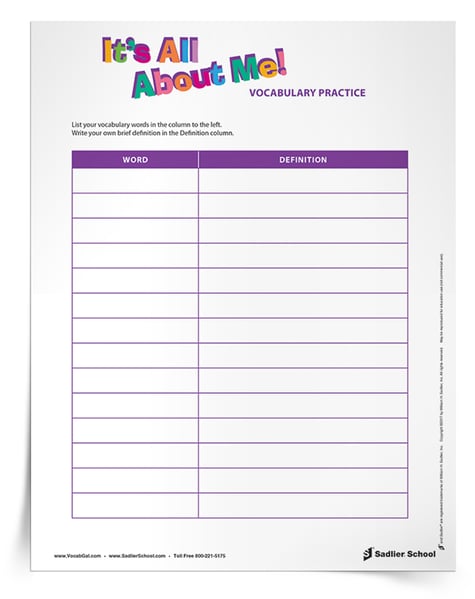
With the 7 Options for Vocabulary Homework bundle, students can choose from a variety of fun and engaging activities for learning or reviewing vocabulary words. In addition to the homework selection sheet, the bundle includes worksheets for vocabulary homework ideas number five and six. The other vocabulary homework options can be completed on a plain piece of paper or in student workbooks.
Here are the vocabulary activities listed on the 7 Options for Vocabulary Homework handout:
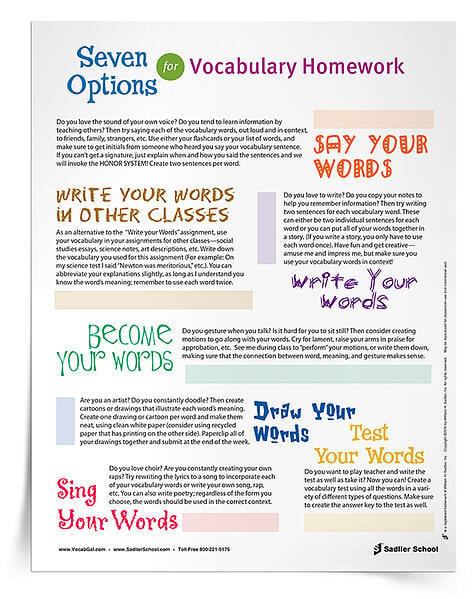
#1 Say Your Words
Do you love the sound of your own voice? Do you tend to learn information by teaching others? Then try saying each of the vocabulary words, out loud and in context, to friends, family, strangers, etc. Use either your flashcards or your list of words, and make sure to get initials from someone who heard you say your vocabulary sentence. If you can’t get a signature, just explain when and how you said the sentences and we will invoke the HONOR SYSTEM! Create two sentences per word.
Do you love to write? Do you copy your notes to help you remember information? Then try writing two sentences for each vocabulary word. These can either be two individual sentences for each word or you can put all of your words together in a story. (If you write a story, you only have to use each word once). Have fun and get creative – amuse me and impress me, but make sure you use your vocabulary words in context!
#3 Write Your Words in Other Classes
As an alternative to the above “Write your Words,” use your vocabulary in your assignments for other classes – social studies essays, science notes, art descriptions, etc. Write down the vocabulary you used for this assignment (For example: On my science test I said “Newton was meritorious,” etc.). You can abbreviate your explanations slightly, as long as I understand you know the word’s meaning; remember to use each word twice.
#4 Become Your Words
Do you gesture when you talk? Is it hard for you to sit still? Then consider creating motions to go along with your words. Cry for lament , raise your arms in praise for approbation , etc. See me during class to “perform” your motions, or write them down, making sure that the connection between word, meaning, and gesture makes sense.
#5 Draw Your Words
Are you an artist? Do you constantly doodle? Then create cartoons or drawings that illustrate each word’s meaning. Create one drawing or cartoon per word and make them neat, using clean white paper (consider using recycled paper that has printing on the other side). Paperclip all your drawings together for the end of the week.
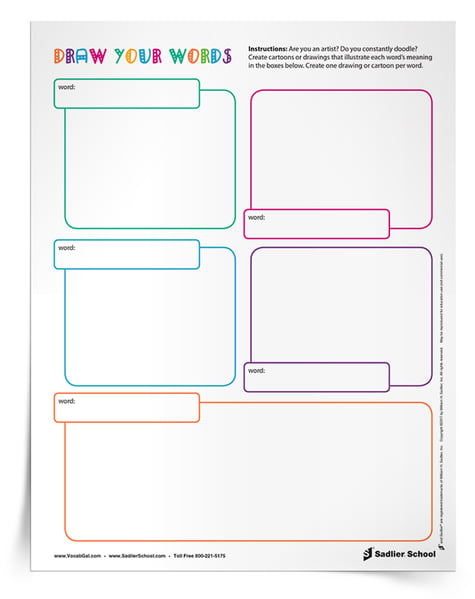
#6 Sing Your Words
Do you love to sing? Are you constantly creating your own raps? Try rewriting the lyrics to a song to incorporate each of your vocabulary words or write your own song, rap, etc. You can also write poetry; regardless of the form you choose, the words should be used in the correct context.
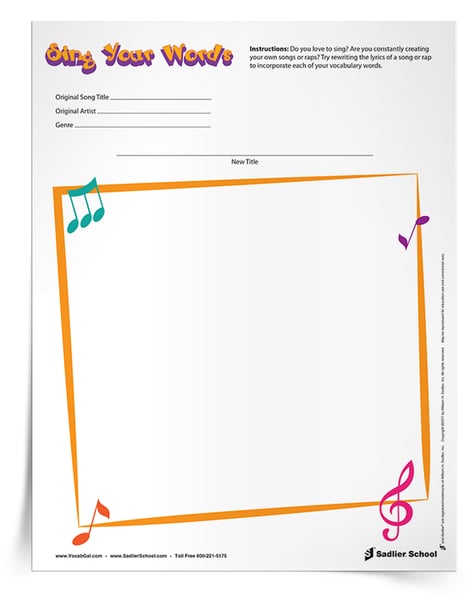
#7 Test Your Words
Do you want to play teacher and write the test as well as take it? Now you can! Create a vocabulary test using all the words in a variety of different types of questions. Make sure to create the answer key to the test as well.
Download the 7 Options for Vocabulary Homework bundle and have students keep the selection sheet in their binders. Now they have seven weeks of vocabulary homework assignments!
Additional Vocabulary Homework Ideas
|
|
|
|
Ultimately, establishing a culture of community and trust in the classroom, explaining the reasoning behind and the benefits of homework, and providing choice and meaningful topics can make a significant difference in completion rates. Even if homework is not completed on time, teachers can still work to connect with each student to provide motivation to complete the assignments.
As educators, we all strive to make learning exciting and applicable to our students. By setting up clear expectations and providing interesting options, we can make any homework, including vocabulary homework, meaningful and valuable to students.
*I have recently completed Gretchen Rubin’s audiobook The Four Tendencies about what motivates different groups of people. Many of the ideas about motivating students come loosely from her book as well as my own observations. I highly recommend the book to anyone wanting to learn how to better motivate themselves and others.
Katelyn's Learning Studio
Teaching to Love Learning
8 Great Vocabulary Activities and Games for Building Word Understanding
October 5, 2023 by Katelyn Hildebrand
Want to help your students have fun while building word understanding? Use these FUN vocabulary activities and games to make learning new vocab words enjoyable for your kiddos. I promise you– the more fun they have while learning vocabulary, the more the new words will STICK!
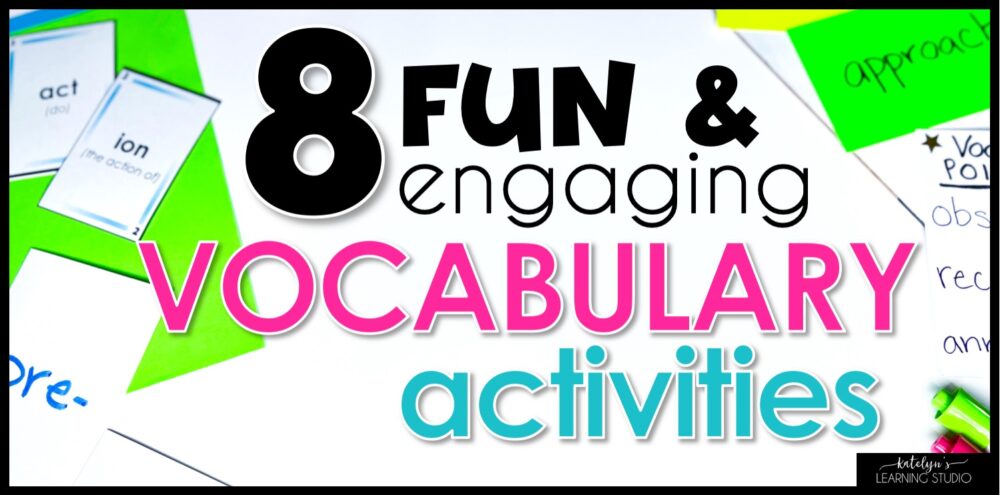
These vocab games are the perfect way to build vocabulary for students in a fun way!
Why is it so important to build their vocabulary word understanding?
The more words they know…
- the better they will understand what they read
- the more confidence they will have when speaking and expressing their ideas
When students build their bank of vocabulary words, comprehension soars through the roof!
Here is a blog post that dives deeper into vocab skills and what teaching vocabulary looks like .
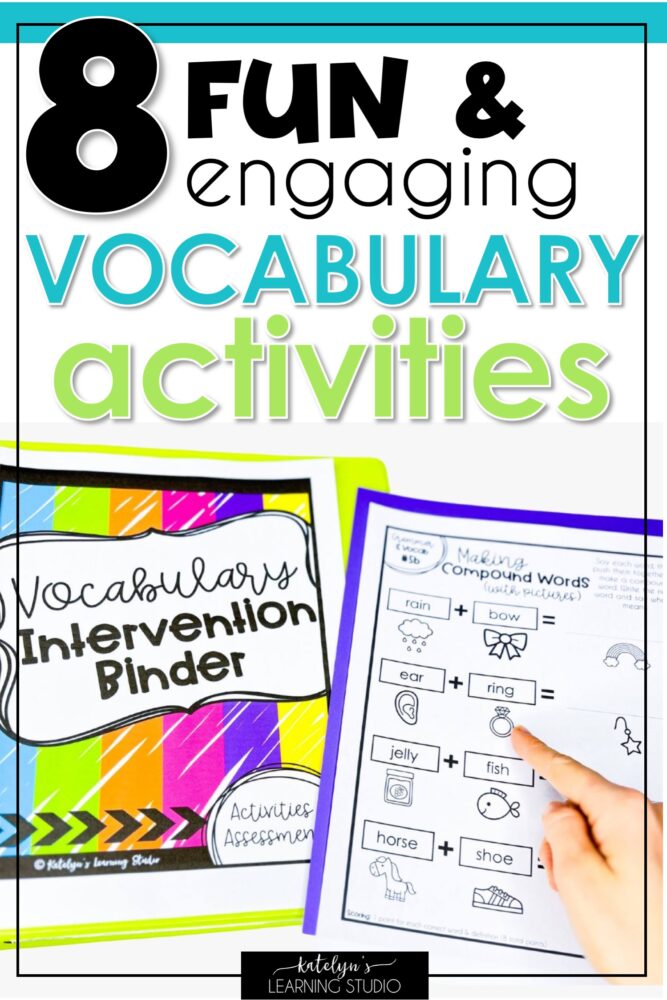
These fun vocabulary activities will help your kiddos have fun while learning new words! Pictured is my Vocabulary Intervention Binder you can grab here.
8 Fun Vocabulary Activities & Games
Each of these fun vocab activities targets key vocabulary skills and academic vocabulary, while still focusing on engagement and making a game out of it. Your kids will love them!
You can find more vocabulary activity ideas in my blog post 7 Awesome Vocabulary Strategies .
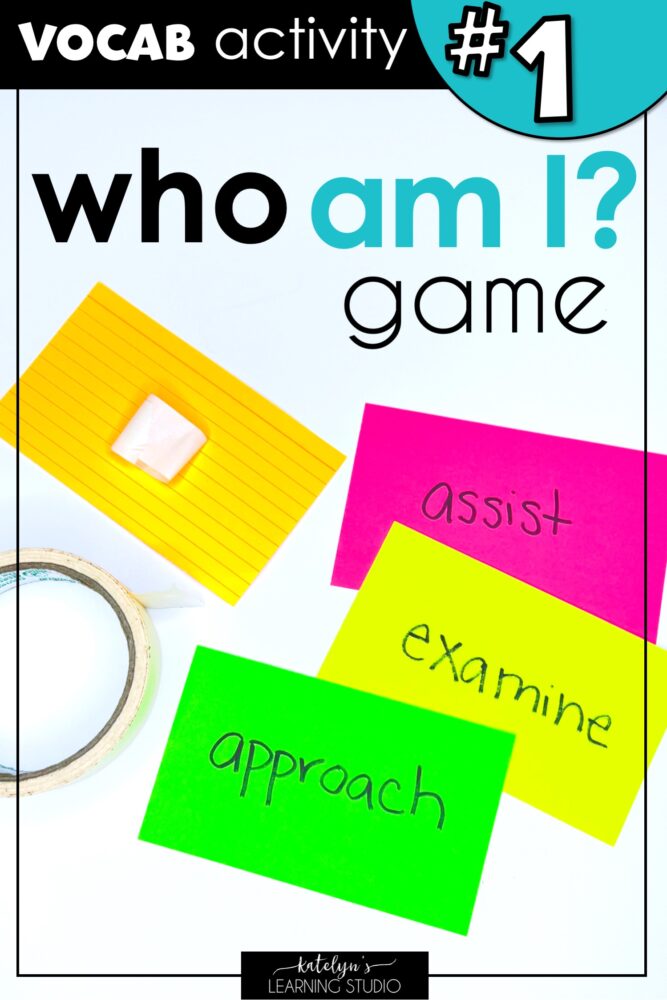
When teaching vocabulary, get students up and moving with this “Who am I?” game.
1. Vocab “Who am I?” Game
This is such an easy game that is so versatile with any vocabulary list!
- Write vocabulary words on notecards.
- Tape a word to each student’s back (without them seeing the word)
- Have students “mingle”.
- Ask yes or no questions to figure out what their word is
- Or the person they talk to can use the word in a sentence (saying “blank” in place of the word)
- When the student thinks they know what the word is, they can go to the teacher, say the word, and use the word in a sentence.
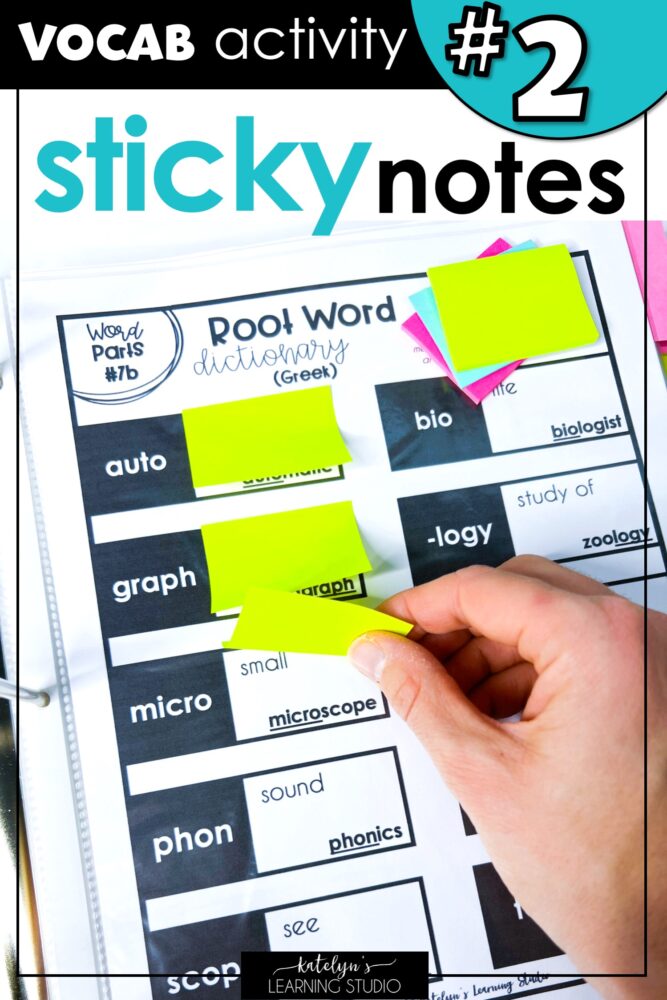
Add sticky notes to your vocabulary building activities to make them instantly more hands-on and engaging, like with this activity in my Vocabulary Intervention Binder.
2. Use Sticky Notes in your Vocabulary Activities
Sticky notes are one of the ultimate low-prep but engaging teaching tools!
- Tactile input (sticking & pulling them off)
- Kinesthetic input (moving them around)
- Visual input (bright colors/color coding, drawing attention, hide & reveal)
- Hands-on interactive engagement!
Plus they are so easy to stick (haha, no pun intended) into any lesson without adding extra work.
*Side note: for more ideas on adding multisensory learning into your reading instruction, here is my Ultimate List of Reading Intervention Activities and 6 Fun Multisensory Learning Activities .
Here are some ideas for using sticky notes in your vocabulary activities:
- Have a list of words/root words and definitions
- Cover either the words or the definitions with sticky notes
- Have students say the word/definition that matches, then check if they are right
- Great for self-assessment!
- Have a memory board of words and definitions
- Cover them all with sticky notes
- Let students take turns taking off 2 sticky notes at a time to uncover matches
- If they find a match, go again. If they don’t, re-cover the words and it’s the next player’s turn.
- Write word parts on sticky notes (prefixes, root words, suffixes)
- Let students rearrange sticky notes to make new words (real or made up!)
- Write words on sticky notes (or let students write the words)
- Let students stick them around the room to label things
- You can also have pictures on a piece of paper and use small sticky notes with matching words for students to stick on the pictures.
I have tons of sticky note activities in my Vocabulary Intervention Binder to make intervention more engaging!
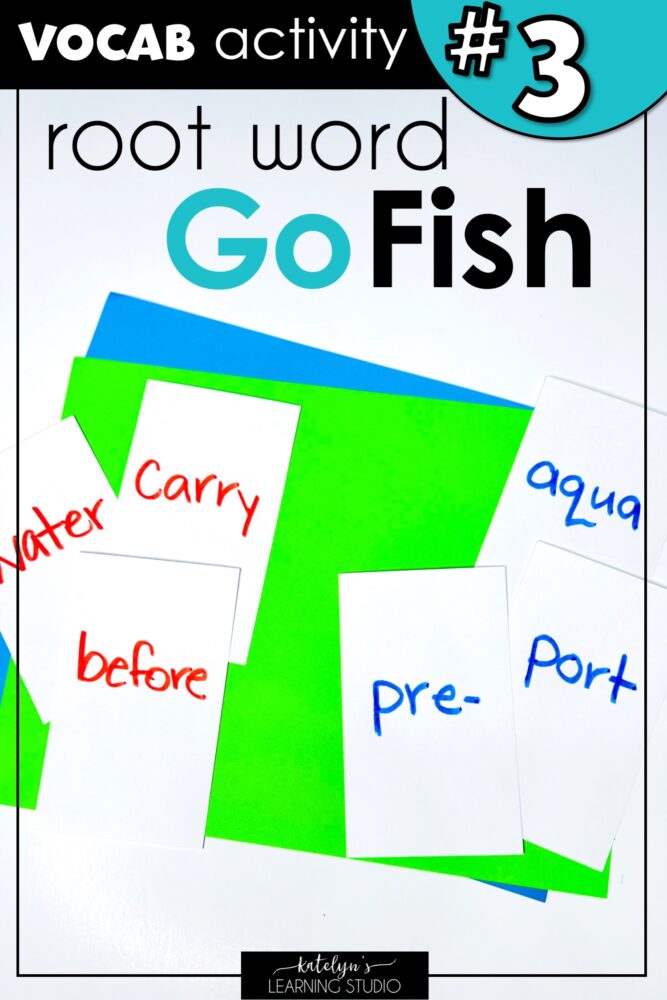
Turn the classic Go-Fish into a vocabulary games learning opportunity!
3. Root Word Go-Fish Vocab Game
A vocabulary twist on a classic game! Most kids already know how to play Go Fish, so this is an easy one to learn. Plus, the focus on root words is an AWESOME way to equip students with the tools to tackle big words!
Learning root words is a fantastic vocabulary booster, and it prepares students to learn how to decode multisyllabic words .
Set Up (for 2 players):
- Get 20 different note cards (or more for more players or to practice more roots!)
- Choose 10 root words to focus on.
- Write one root word on each of 10 cards.
- Write the meanings on each of the other 10 cards.
- Shuffle the cards and place the stack face down in the middle of the players.
- Hand 5 cards to each player.
- Players can put down any root + meaning matches.
- At the beginning of your turn, draw a card from the pile.
- Take turns asking for a root or a meaning from the other person.
- If the other person has the card you ask for, they give it to you. If not, it’s the next player’s turn.
- If you get a card that makes a match, put the match down in front of you.
- Keep playing until someone runs out of cards.
- The person with the most matches wins!
*Variations: Instead of matching root words and meanings, you can match…
- root words with a whole word that has that root
- words (that contain root words) with definitions
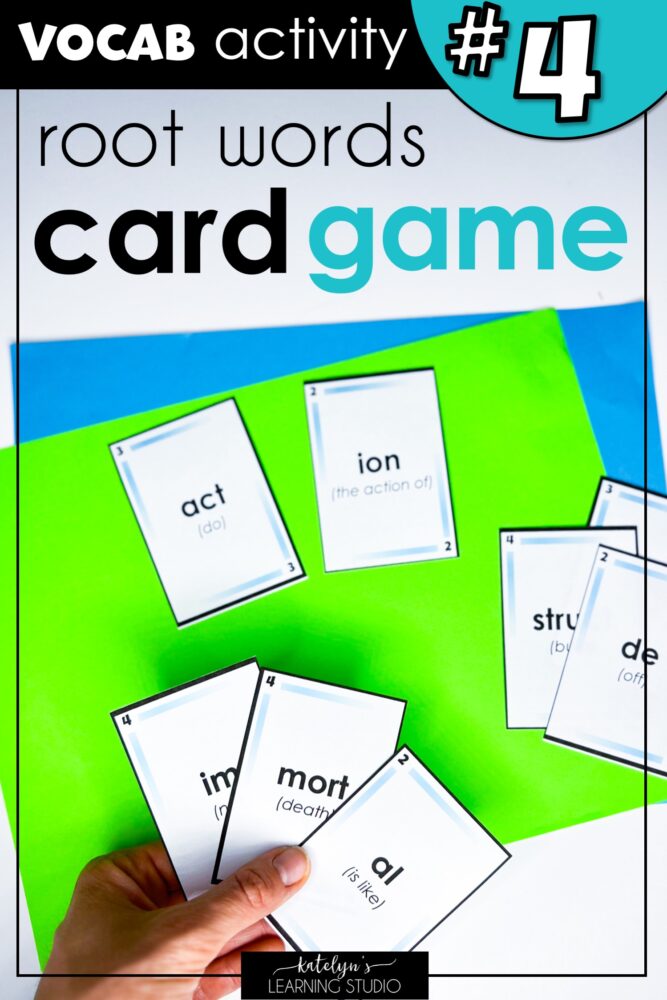
Vocabulary games like this FREE root words card game make learning more fun!
4. Word Builder Vocabulary Game:
This is a fun take on the traditional card game called “Rummy”. You can buy pre-made Rummy Roots cards , or just print out these similar {FREE} Word Builder cards .
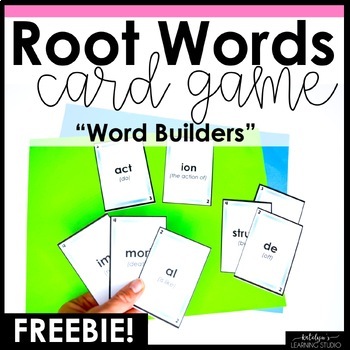
- Shuffle and deal everyone 5 cards.
- Place the deck face down in the middle.
- Flip the top card over face up next to the deck (this is now your discard pile).
- Player 1 can either draw one card from the deck, or take the top card from the discard pile.
- If they can make any word from the word bank with their root cards, place that word down face up in front of them.
- Their turn ends by discarding one card into the discard pile (face up right next to the deck).
- The next player can either take the top card of the discard pile, or draw a card from the deck
- When one player lays down all of their cards, the game is done.
- Add up all of the points from the words you made.
- Subtract any points from cards left in your hand.
- The player with the most points wins!
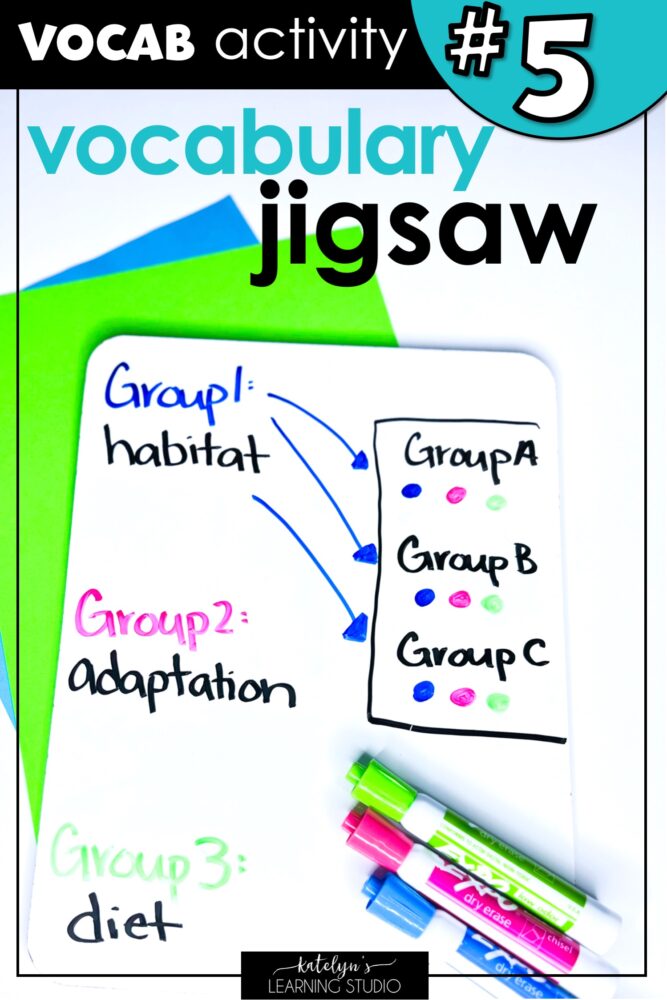
Have students teach the vocab words in this reciprocal teaching activity.
5. Jigsaw Vocabulary Activity
This is a great vocabulary activity to let students do the teaching and learn from their peers. It is a great confidence boost, and teaching is one of the best ways to learn something in long-term memory!
Instructions:
- Split the class into 4-5 groups.
- Give each group an assigned word.
- Let each group research their word together to become experts on it (find it in a dictionary, draw pictures of it, come up with synonyms and antonyms, use it in a few sentences, etc.)
- Then rearrange the groups so that each new group has 1 student expert for each word.
- Let students take turns teaching their new group their word.
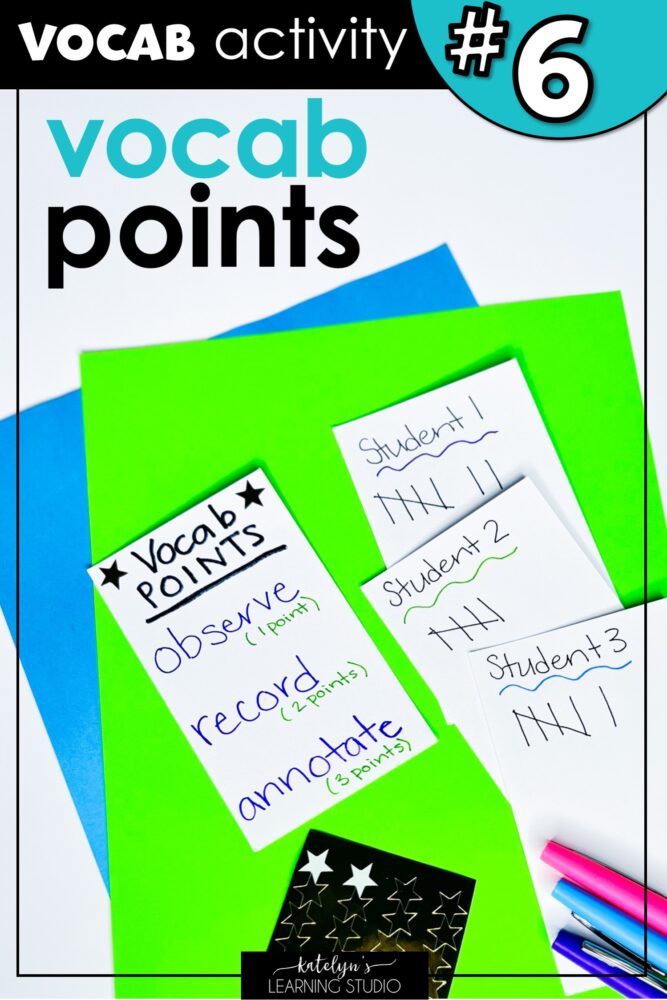
Vocabulary activities for kids don’t have to be complicated. Try this simple points game!
6. Vocabulary Points Game
This is a great motivator for actually USING new vocabulary words learned! And the more they use their new vocab words, the more the meaning will become solidified in their natural language.
- Choose 5 vocabulary words for the week and display them on the wall.
- Teach students what each one means and give examples of using them in a sentence.
- Each time you hear a student using one of the words in a sentence the correct way, they get a point.
- See how many points students can accumulate over the week!
Optional: if a student (or the class as a whole) hits a certain number of points, they get a prize.
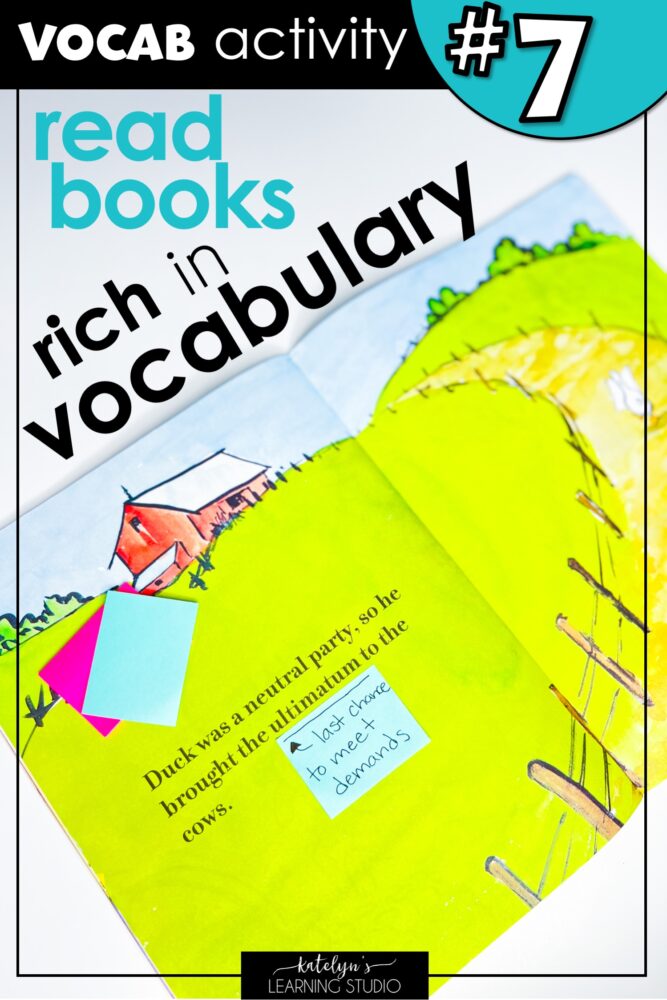
Teaching vocabulary words you find in books is a great real-word example of natural vocabulary building.
7. Read Books Rich in Vocabulary
Books and read-alouds are such great opportunities for learning new words in context. Read high-quality books with rich language and vocabulary.
- When you come across a new, interesting, or meaningful word–talk about it!
- Write it out so the students can see it.
- Re-read the sentence it is in.
- Ask students to use context to say what they think it means.
- Use it in additional sentences to model it’s meaning.
- Give synonyms and antonyms for it.
- Let students use it in their own sentences.
No, don’t do this for every word of the story itself will lose its impact and flow. BUT, be sure to do this for the particular words you want to teach your students (at least one per read aloud session).
Here is an Amazon (affiliate) link to all of my favorite high-quality books arranged by reading level.
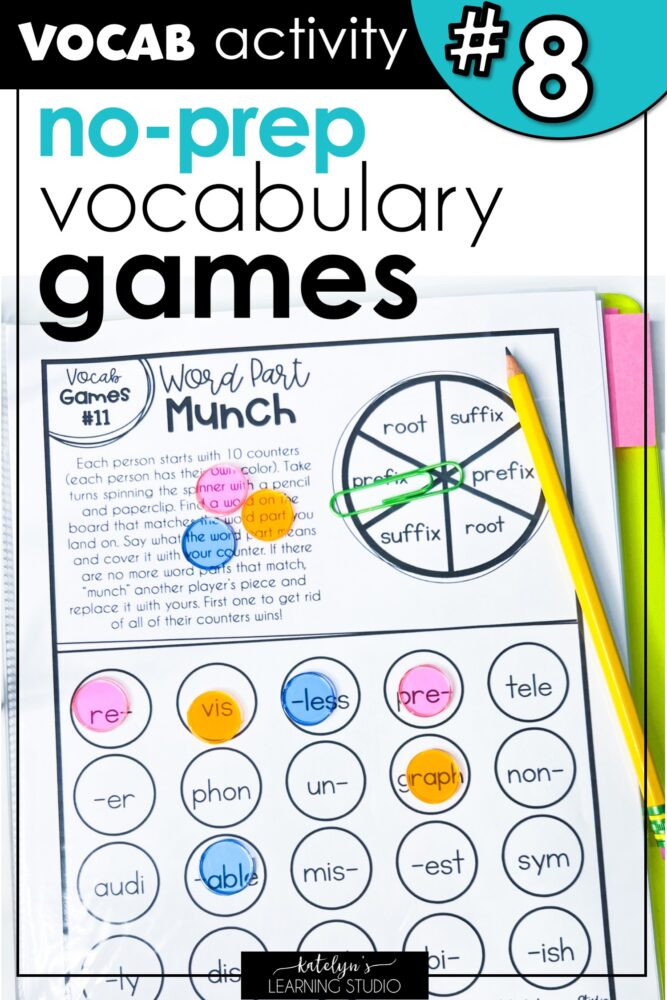
These vocabulary word games printable activities are perfect for no-prep practice! Check them out in my Vocabulary Intervention Binder .
8. No-Prep Vocabulary Games (+ Vocabulary Activities Binder)
These fun vocabulary games are PERFECT for easy, instant engagement. Just print them out and use them as a vocabulary enriching center, mini-lesson, or fast-finisher!
You can find these vocab games in my Vocabulary Intervention Binder .
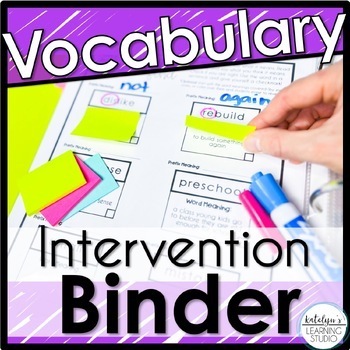
The binder includes loads of print-&-teach intervention activities to cover basic vocabulary skills, grammar, root words and affixes, and context clues.
Plus, there is a whole section of these no-prep games to cover all of those topics!
They include:
- Definition Memory
- Mystery Descriptions
- Category Guess
- Parts of Speech Roll-It
- Compound Word Maze
- Synonym Board Game
- Antonym Catch a Star
- Homophone Memory
- Homograph Board Game
- Word Part Munch
- Word Part Bingo
- Mystery Words
This is a super fun and easy way to ramp up vocabulary lesson engagement!
I hope these vocabulary activities and games have sparked some ideas of fun ways to build your students’ language confidence and word understanding! Vocabulary building activities are a great way to have fun while still learning new vocab words and skills.

Reading Worksheets, Spelling, Grammar, Comprehension, Lesson Plans
Vocabulary Worksheets
Vocabulary is a fundamental learning concept but covers many different areas. We've developed hundreds of practice activities to help your student improve their vocabulary skills. You'll find worksheet activities around the alphabet, dictionary skills, Fry sight words, Dolch sight words, phonetics, homographs, homophones, prefixes, proverbs and adages, root words, shades of meaning, suffixes, synonyms and antonyms! All of our printable worksheets are designed around common core standards and cover a broad range of skill levels from kindergarten through high school. Feel free to print copies for your classroom or at home.
Alphabet Worksheets
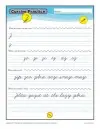
Dictionary Skills Worksheets
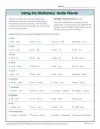
These worksheets help students to learn how to effectively use a dictionary. All worksheets are free to use at home or in the classroom. Just print and duplicate!
Fry Word List - 1,000 High Frequency Words
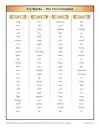
Homograph Worksheets - Learning About Homographs
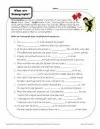
Homophone Worksheets
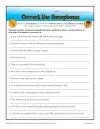
Phonics Worksheets | Phonetics
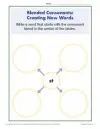
Prefix Worksheets
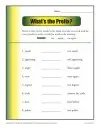
Proverbs and Adages Worksheets
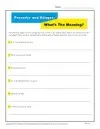
These worksheets hep students to understand the meaning of proverbs and adages, looking into the deeper meaning of these phrases.
Greek and Latin Root Words
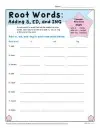
Shades of Meaning Worksheets
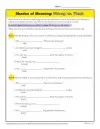
These worksheets help students learn to interpret the shades of meaning behind specific words, in order to help with reading comprehension and writing.
Suffix Worksheets
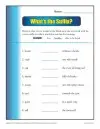
Synonym Worksheets and Antonym Worksheets
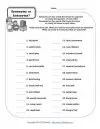
Trending Post : 12 Powerful Discussion Strategies to Engage Students

5 Brain-Based Vocabulary Activities for the Secondary Classroom
Trying to find some new practice activities for your existing vocabulary units? These brain-based vocabulary approaches are unique — perhaps just what you need.
Do your students smile at you when you begin a vocabulary lesson? Do they act interested or ask questions? Are they willing to try using the words in their own speaking and writing? Over the years, I’ve noticed that when I’m “on” with my vocabulary instruction, my students are, too. They’re into it, learning, and motivated. In contrast, when I rush through vocabulary instruction because of time constraints, lack of preparation, or simply lack of enthusiasm, my students can read me like an open book.
Previously, I wrote about increasing vocabulary retention in the secondary classroom. Retention is ultimately the goal of vocabulary instruction, but in order to get there, teachers need to differentiate their instruction and practice activities to reach all types of learners, which includes adding variety through learning styles and critical thinking levels. While I provided a few ideas regarding how students can interact with vocabulary words in the last post, I’d like to get more specific and explore several unique and creative avenues that teachers can incorporate into their curriculums. I teach ELA, but these brain-based vocabulary ideas can apply to word lists from any content area.
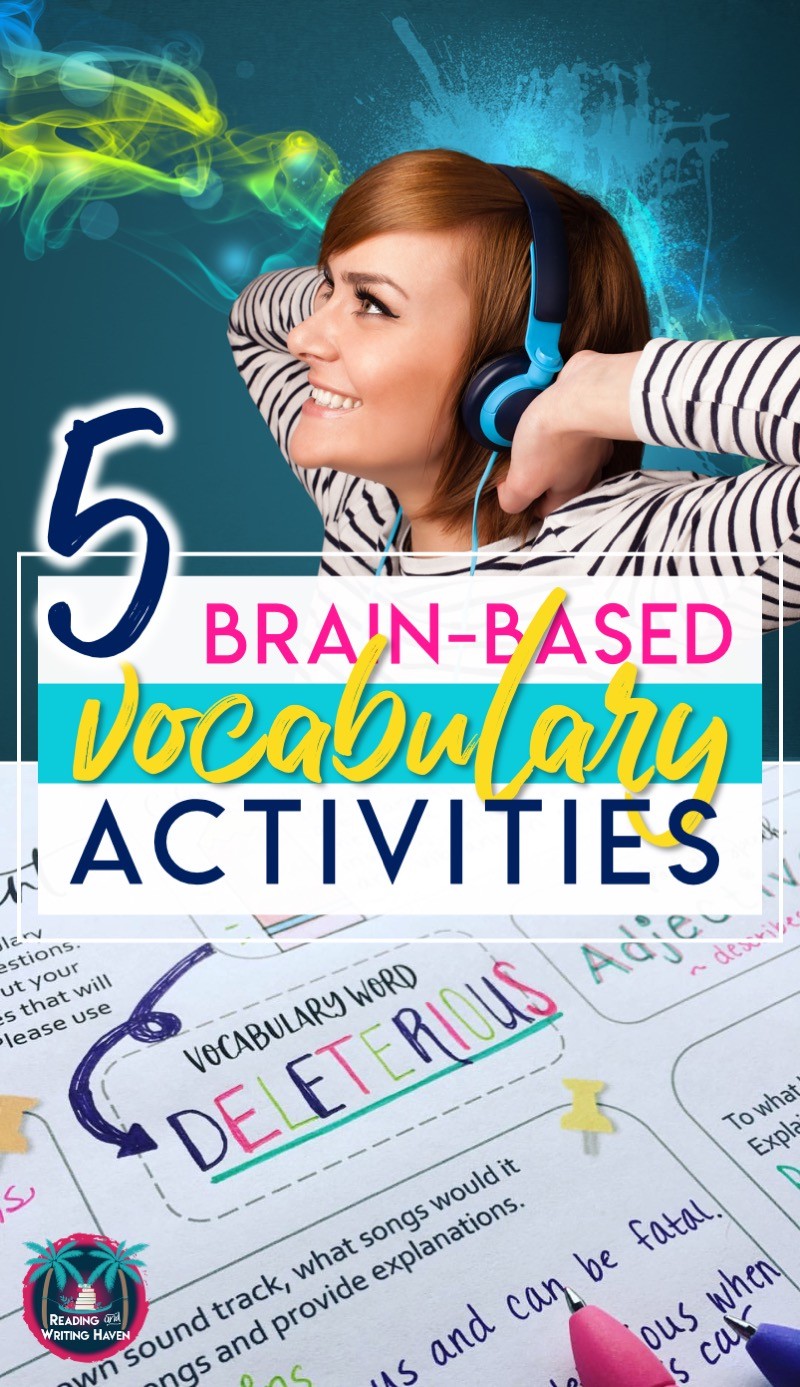
BRAIN-BASED VOCABULARY LEARNING
3 truths and a lie.
Games are fun. If your classroom culture calls for games, engagement, and student-directed learning, try out 3 truths and a lie. The best part about this game (other than the fact that it’s enjoyable) is that students create it. Don’t get me wrong…I LOVE making games to use my classroom . Yet, vocabulary is a perfect vehicle for students to be in charge of their learning, to create something meaningful.
Put students in charge.
I simply ask them to select a word from their list and then to write down four statements about that word. I encourage them to think about the word’s part of speech, the definition, related and unrelated words, associations they may have, and the word’s personality. One of the statements they write should be a lie.
Here’s an example:
- Ubiquitous is kind of like the plague. Even if you don’t like it, you can’t get rid of it.
- Ubiquitous is an adverb.
- Ubiquitous is cousins with the words “pervasive” and “universal.”
- If cockroaches were ubiquitous, I’d move to Mars.
Your students can get as creative (or as simplistic) as they want with their sentences. After creating them, collect the statements, and put students in small groups. Have them discuss the words and statements to try to identify the lie ( in the example above, the lie is #2 ). If you’re concerned about the accuracy of your students’ sentences and want to avoid unnecessary confusion, read through them first and have students work in groups to discuss them the next day.
Why this works:
1. Students are doing the thinking.
2. It can be straightforward (recall) or higher-order thinking (analytical), so it’s differentiated by nature.
3. It’s engaging.
4. Students will remember many of the lies and the truths, so it will help them to retain the word meanings longer.
Bumper Words
Bumper words is a categorizing activity that helps students to learn the relationships between words on their list. If you plan to use a bumper words activity, keep that in mind when selecting your word list so that it’s easier to create the assignment. Here’s how it works.
Teacher-Directed
You (the teacher) group the words into categories. You can make this into a worksheet or a graphic organizer, or you can just write them on the board to use as a class activity. Another option is to create a manipulative for small groups or station use. When you put the words into groups (of 3 to 5 is best), all of the words should relate except for one . The students’ job is to figure out which word is not related, and they bump it to the next word group. It’s a chain effect. Here’s an example:

As you can see, in the first group of words, abase, demean, and humiliate can all be related, but extol does not fit. So, it gets bumped to group two, where students look for another ill-fitting word that is then bumped to group 3, and so on. When creating this activity, you can use words that are not on your vocabulary list to complement the ones that are.
Student-Directed
Again, if you want to ask your students to think more critically about their words, you can ask them to create a bumper words chain using all or some of the words on their list. This works well as a group assignment. Students could create their bumper words combinations on a piece of easel paper or large poster board, and then groups can rotate around the room to try to solve each other’s puzzles. If you choose to have students create their own examples, it would be beneficial to show them how to make one by modeling it together or analyzing an existing example first.
1. Students are thinking about the words and how they relate to other words, thereby making associations – great for brain-based vocabulary learning!
2. Once again, this activity can be differentiated by ability level.
3. It engages students in meaningful interaction with their words.
4. It’s unique…your students probably haven’t heard of this one before. Ride the novelty wave.
Personify a Word Using Social Media
Because social media is such a pervasive aspect of twenty-first century learning, I’m always looking for healthy ways to incorporate it in my classroom. One of the things I love about teaching vocabulary is that it can be creative. Words can be given personalities based on their meaning. I often ask students to personify a word in order to get them to think about it differently.
Word Personalities
Here are four of my favorite assignments that include word personalities using social media:
- Facebook : Have students create a Facebook poster based on one of the words on their list.
- Twitter : Ask students to create a Twitter profile and feed for a word.
- Instagram : Students can create a scrapbook or Instagram posts for their word.
- Pinterest : Give students the task of creating a Pinterest profile for a word, including a list of boards and pins that would relate to that word.
When I give students assignments like these, I find it’s beneficial to allow them to choose a word they want to learn after discussing what they will do with it. I always encourage students to select a new word…one they either have never heard of, or one they have heard of but cannot explain. By discussing the task before selecting the word, students will be able to choose a word they want to use to complete the assignment, and ownership is key when it comes to creativity.
Some struggling readers and writers might be overwhelmed if we ask them to select any word they want, so it’s a great differentiation / scaffolding option to have a list of suggestions prepared.

Why this works:
1. In order to do any of these assignments WELL, students must think deeply and meaningfully about the word.
2. Students will take it upon themselves to analyze the social media outlet more closely than they have in the past. What text structures does it have? What is the common language and culture of the site? These questions must be studied and answered before creating a product.
3. It hooks students by allowing them to utilize their creativity and social natures to learn about vocabulary.
4. It is easy to incorporate technology. While students can create a poster like the one above, they could also use digital platforms to complete the assignment.
Pictures, Short Films, & Music
A fun way to incorporate writing into your brain-based vocabulary instruction is through the use of pictures, short films, and music. They can all be used similarly for this assignment. Although numerous options exist, these three ideas are a good place to start:
Student Research
1. Simply ask students to do some research and find a certain number of pictures, short films, or songs that relate to words on their vocabulary list. You could have them focus specifically on one word and find a picture, a short film, and a song that relates to it, or you could ask them to choose ten words off the list and find one connection for each word. Either way, students are building onto existing knowledge about a word and using critical thinking skills to make meaningful connections. I like to have my students write a short paragraph (3-5 sentences) explaining their connections to the word.
Bell Ringers
Another way to use these elements is to incorporate them as bell ringers. Each day, begin the class by projecting an image, showing a short film, or playing a song for students. After watching or listening, ask students to make connections between the artwork and words on their vocabulary list. To elicit more participation, I have my students write their thoughts first, then talk with a partner, and finally share with the class.
Give your students a sheet of small images (I like to using small pictures they can color), and tell them to match each picture to a word on their vocabulary list. They can then explain in a few short sentences why each picture and word relate. Simple but effective. Here is a resource you can use for any list.
1. Music, movies, and pictures are embedded in our culture. Students appreciate learning opportunities that incorporate media relevant to their lives.
2. This assignment is a simple way to differentiate by learning styles. It appeals to students who are musical and visual by nature.
3. Once again, forming connections to vocabulary words will help students remember them longer.
4. It can be scaffolded for students on various scales of the literacy ladder.
I use mind maps as choice assignments throughout the year with various aspects of my curriculum. Mind maps are excellent brain-based vocabulary . activities that help students retain the definition of a word instead of memorizing it for a quiz and forgetting it.
When I assign mind maps in relation to vocabulary words, I generally have students select one word from our list instead of several because the connections will be more meaningful for them.
A good tip is to first ask students to circle any words on their vocabulary list that they cannot define on the spot — in that moment. Afterward, have them choose one word they want to study more intentionally, and then introduce the mind map assignment. If you give them the specifics of the assignment first, they might be more likely to select an “easy” word from the list.
I like to project example mind maps (you can easily find some by googling the term “vocabulary mind maps”). Together, we analyze the structure, design, and content of the example maps to determine students’ options. We also talk about my expectations (what’s acceptable and what’s not). In this way, we essentially develop a student-generated rubric on the spot. Bonus.
What can students incorporate in their mind maps? I encourage mine to use the basics (relate it to synonyms, antonyms, and examples), but I also ask them to stretch their imaginations to incorporate visual components, categories related to the word, colors that symbolize the word, and other symbolic elements.
1. Research shows that mind maps are brain-based learning activities.
2. Thinking symbolically about a word helps students to deepen their understanding of it.
3. Mind maps require students to engage with a word meaningfully from different angles for an extended period of time.
4. It combines right-brain creative style learning with left-brain logic style learning, resulting in a powerful and memorable experience.
Inspired and wanting more vocabulary ideas? Read this sister post in which I discuss five more of my favorite, brain-based vocabulary practice activities for the secondary classroom .
Grab a Free Template!
You might find this free, editable vocabulary template to be helpful in getting started.
Before using any of these brain-based vocabulary strategies in your classroom, you will need to establish a solid list of words. For some inspiration regarding how to strategically and effectively select word lists, click on over to Lauralee at Language Arts Classroom . She has some insights to share with you!
RELATED RESOURCE:
This vocabulary bundle contains numerous resources to engage students in meaningful brain-based vocabulary practice with any word list.
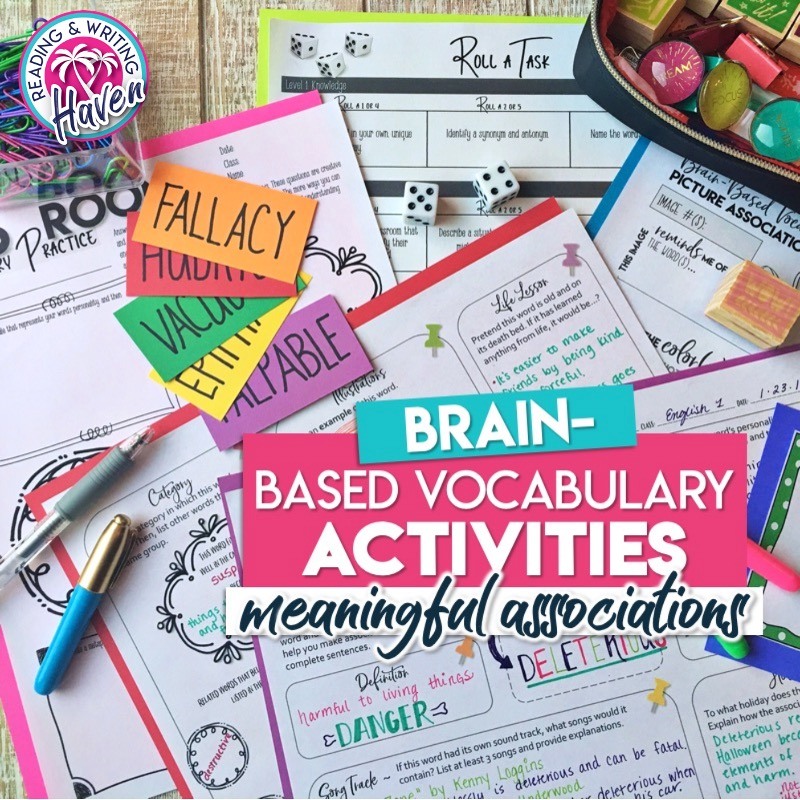
Get the latest in your inbox!
Southern Fried Teachin'
10 Fun & Engaging Vocabulary Activities
September 20, 2018
As teachers we know that vocabulary is pivotal in students’ success. When I was growing up, our vocabulary activities consisted of looking up definitions in the dictionary and copying them down on notebook paper. Do you think I truly understood those vocabulary words?
Not. One. Bit.
In order to truly understand vocabulary words and what they mean, inside and out, you have to manipulate the words and use the words in meaningful ways.
Here are is a collection of 10 fun and engaging vocabulary activities that I have collected through my years of teaching. Hopefully you can find a couple of new ideas to use in your own classroom!
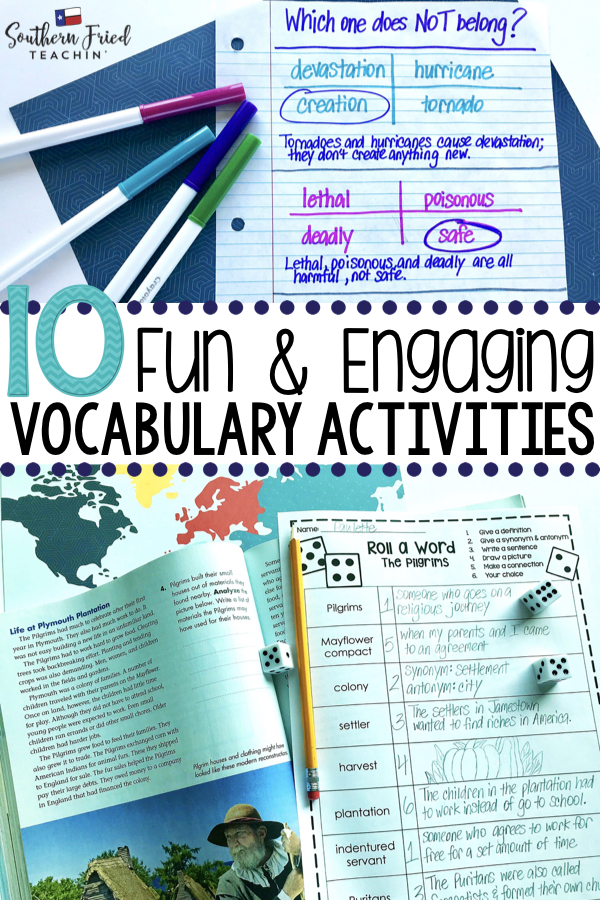
1 – ACT IT OUT >>>>>
Year ago (I won’t tell you how many years….) I taught 3rd grade. We would read stories out of the reading textbook and do activities with the stories. Their favorite activity was acting out the vocabulary words. I still remember to this day the word”amazed”. I gave the story of dreaming of going to Disney Land for years just hoping to see Cinderella’s castle. I finally got to go to Disney Land and saw the castle, and I just stood there staring with my mouth open. I was in awe. I had my students stand up and act out seeing the castle for the first time. They loved it. And they remembered the meaning even months later when I would point to the word on our word wall and ask what it meant. Every single student could tell me. Acting out the word made them remember it. Truly remember it. And understood it.
So get your students up out of their seat and have them act out their words. Have fun with it!
2 – DICE ACTIVITIES >>>>>
I LOVE using dice in the classroom. And students love it too. Dice make practicing vocabulary super fun and engaging for kids. My students actually begged to do these activities. Literally.
Roll a Word: Dice Vocabulary Activities can work with reading passages from different subjects…
Basically all you do is roll one die for each word. The student does the activity according to what number is rolled.
1 – Give a definition
2 – Give a synonym & antonym
3 – Write a sentence
4 – Draw a picture
5 – Make a connection
6 – Your choice
Rolling the die makes it FUN!
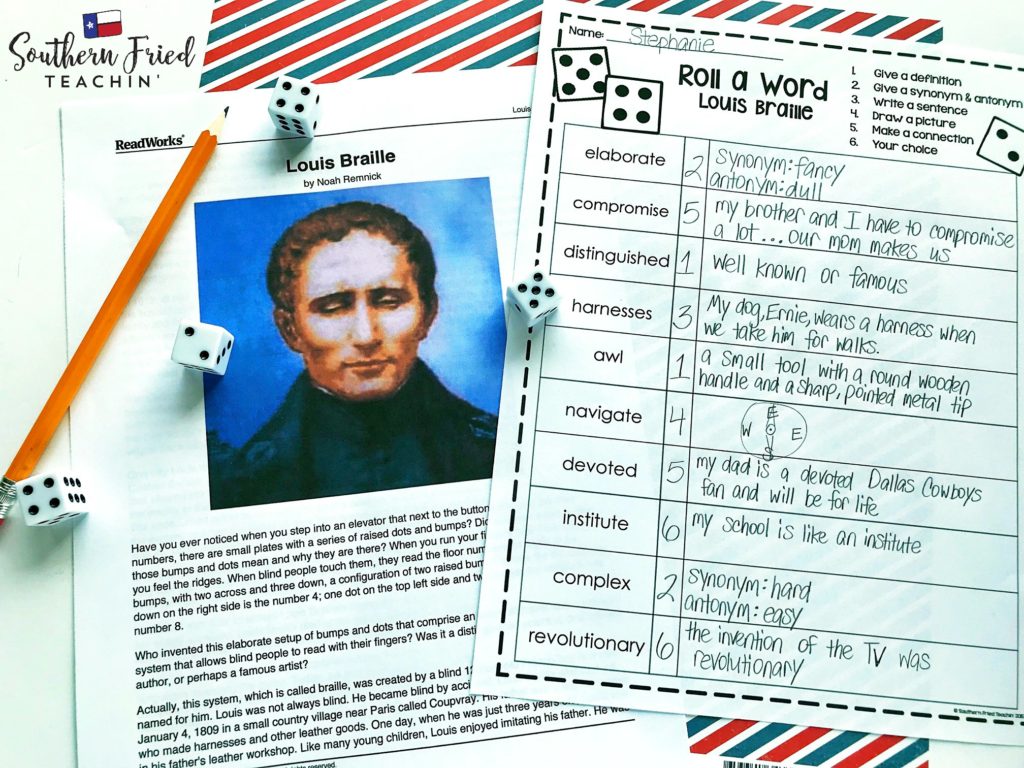
In math…
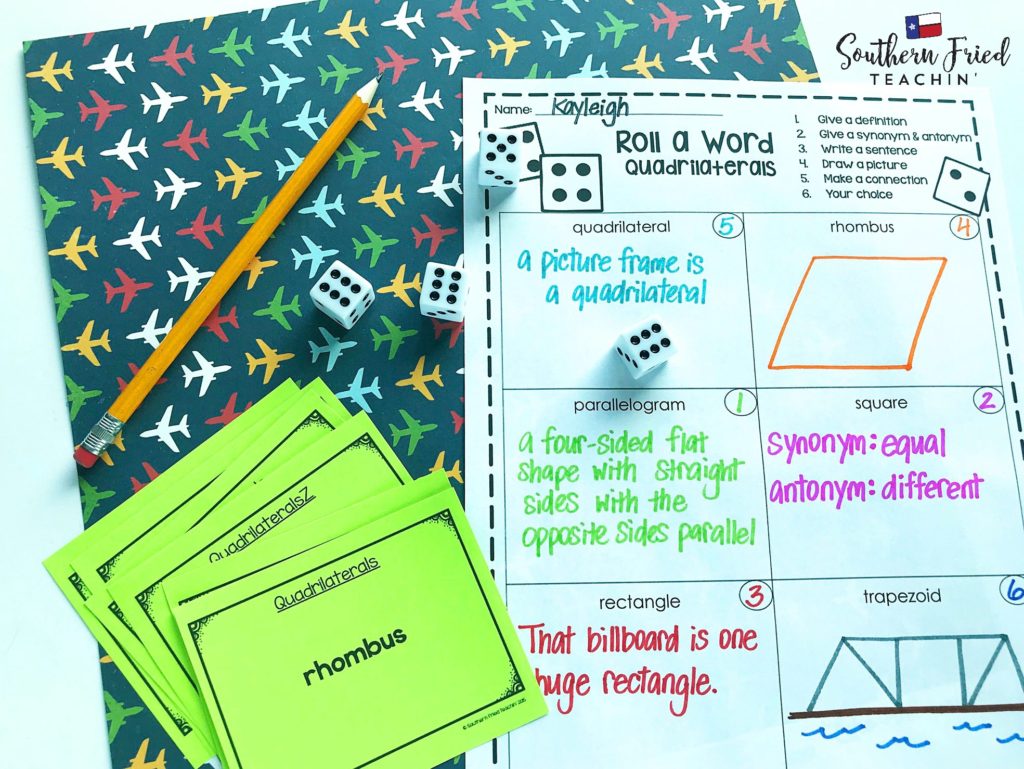
With a book or novel…
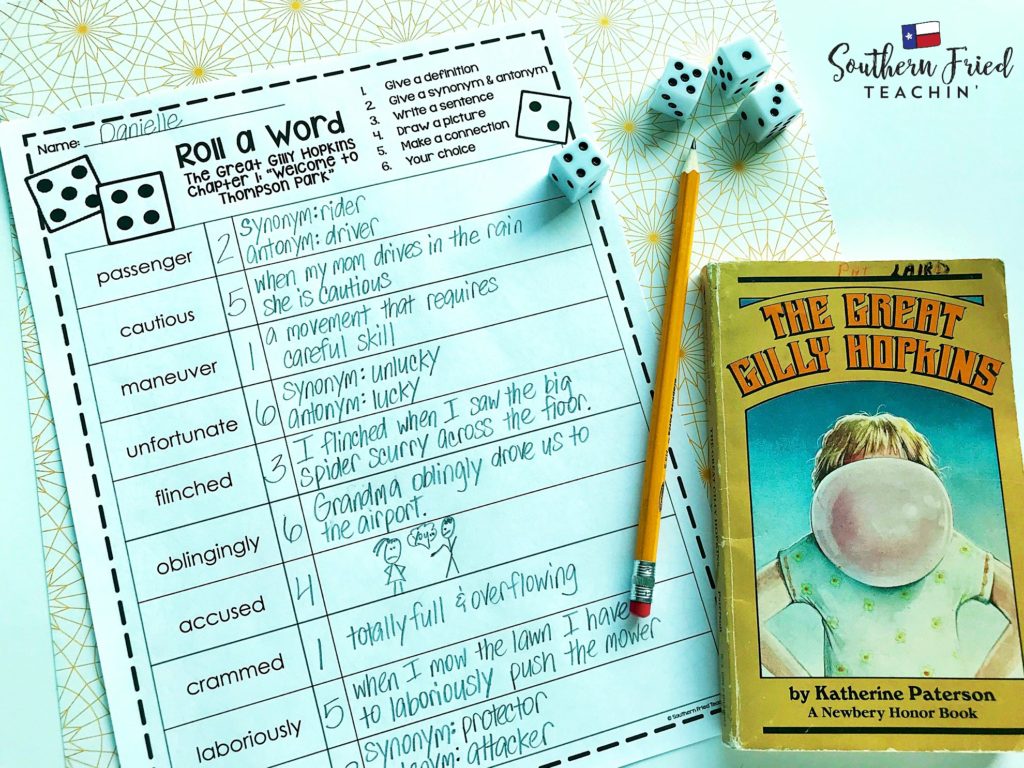
Or even with a textbook…
Making a textbook fun and engaging? Yes, it can actually happen!
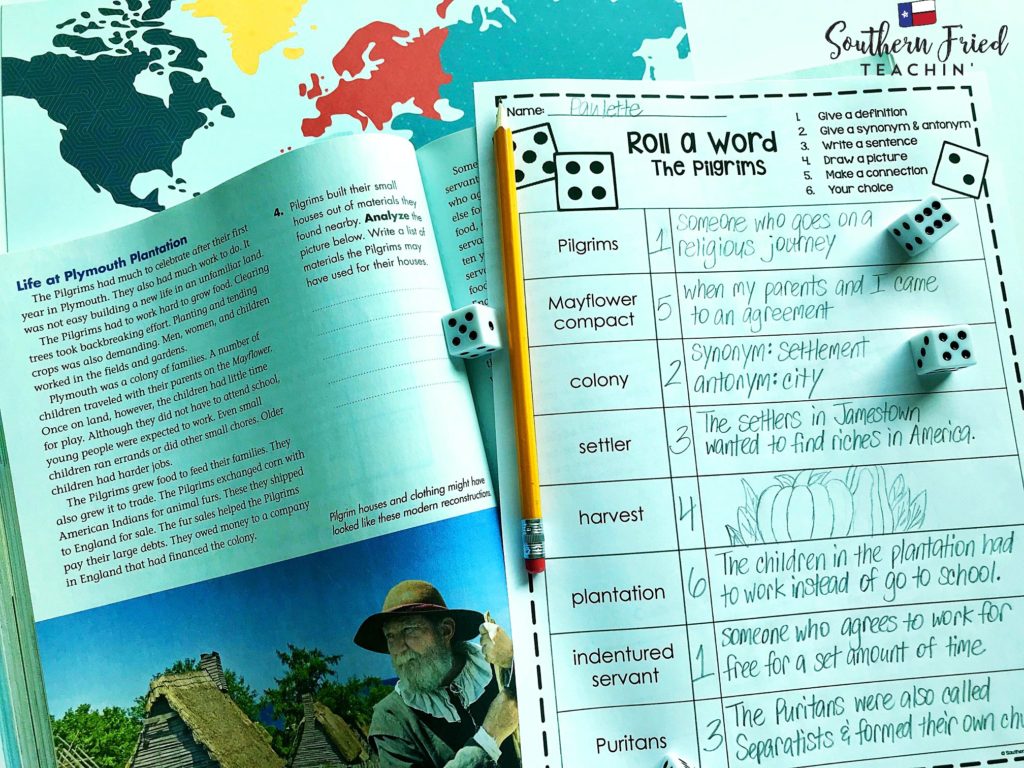
Click on one of the pictures to purchase this activity. It’s editable, so you can add in your own words to make it work with with any topic, any subject, and any grade. There are two different versions, each one with different numbers of words.
3 – CROSSWORD PUZZLE >>>>>
Have your students create a crossword puzzle with their vocabulary words. Creating clever clues for each word will really make them think hard about each word, especially if you make it to where they can’t use definitions
4 – Word map ~ This one can go so many ways. Creating a word map on vocabulary words stresses students to find the relationships between the vocabulary word and other words. You can include pictures, examples, real world connections, definitions, descriptive words, etc. The possibilities are endless!
Here is an example on cowboys that was created after reading an article on cowboys.
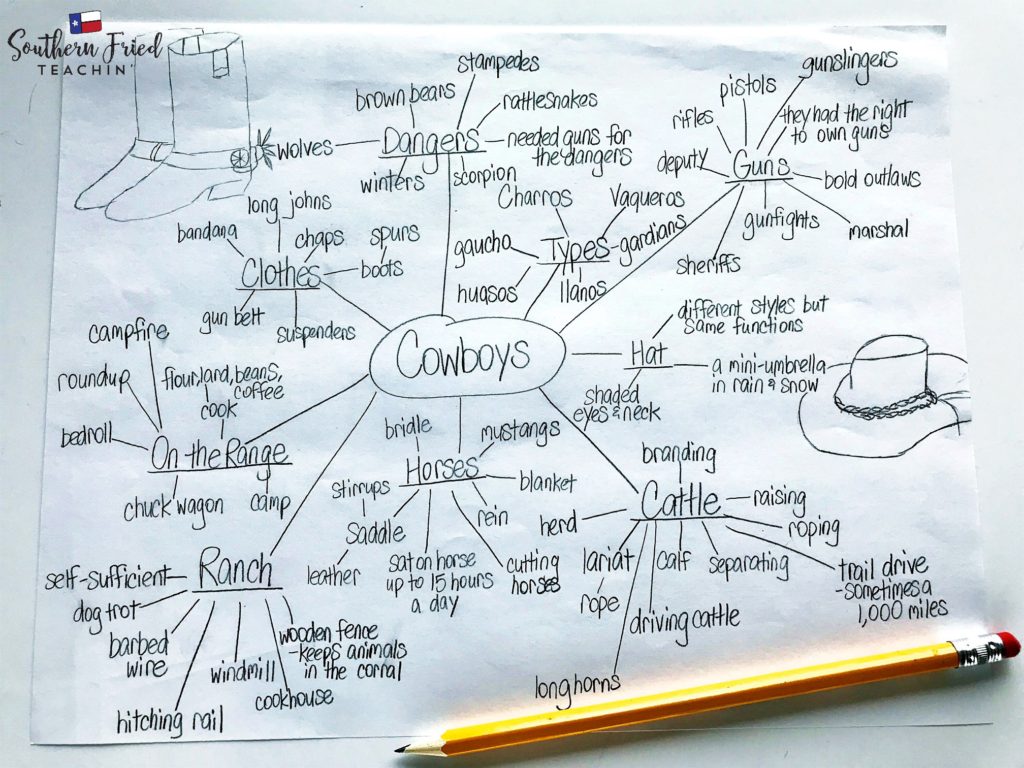
5 – FRAYER MODEL >>>>>
The Frayer model is a graphic organizer used to build vocabulary. There are four parts: definition in your own words, facts or characteristics, examples, and non-examples. I did several examples together with my students before having them do one on their own. I found that these are great to do with a partner or group since they have to collaborate together.
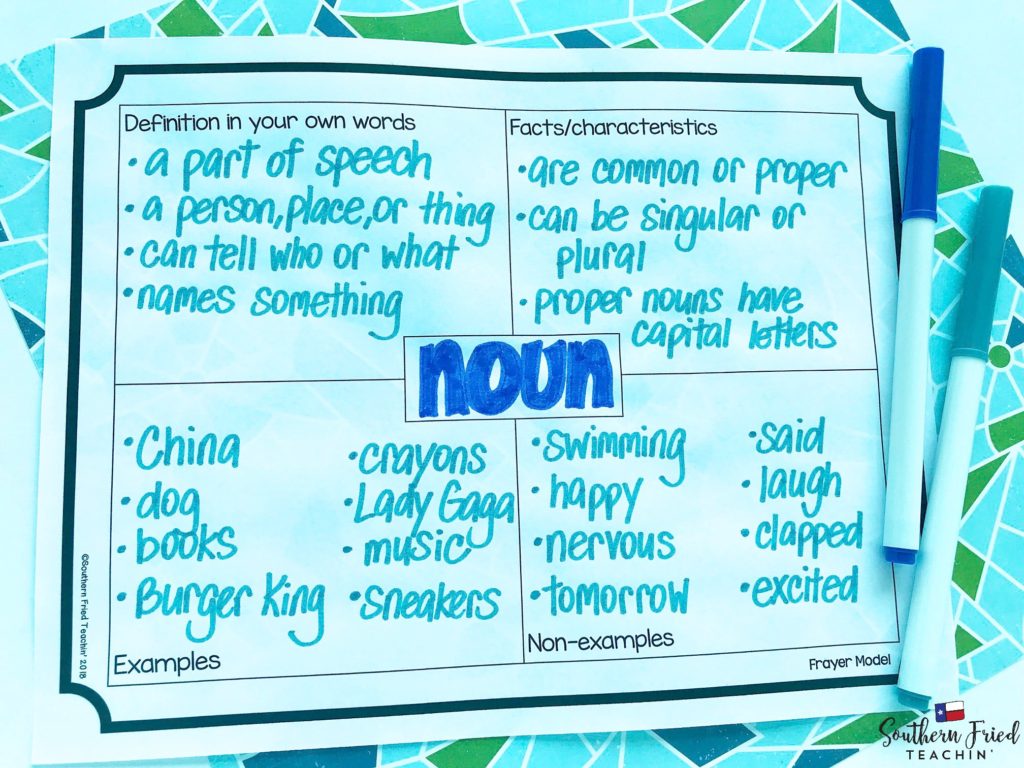
6 – FOOTBALL FEVER VOCABULARY >>>>>
Just like the dice activities in Number 2 above, this activity involves dice. But it also includes a spinner and cards that students can choose from with the same activities. Great for variety! Football Fever Vocabulary also works with any subject, any grade, and any topic. It has a football theme because I’m from Texas, and we love our football!
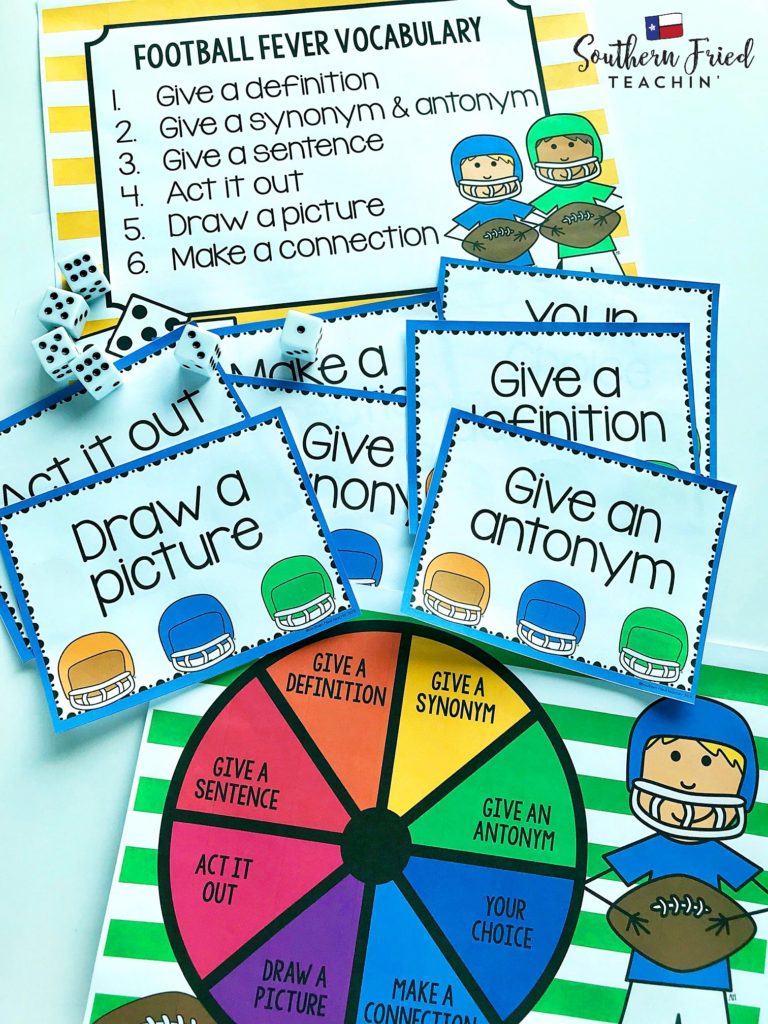
7 – PICTIONARY >>>>>
My students love playing Pictionary, especially my 6th graders! I would write all the vocabulary cards on cards and put them in a basket. I chose a student to come pick a card and then they would draw a picture of that vocabulary word on the white board. Whoever said the correct word first got to come pick a card next and draw. Every student was engaged, learning, and having fun. This activity was great for a ten minute filler or a rainy day.
8 – WHICH ONE DOES NOT BELONG >>>>>
Do you remember the Sesame Street song, “Which one of these is not like the others?” These task cards ask the same question…which one does not belong? It forces you to think about what things have in common…which leads to thinking about the one that that doesn’t belong with the others. It’s a perfect strategy for children!
An example problem is: Which one does not belong? 5 + 5 3 + 7 8 + 1 4 + 6
8 + 1 does not belong because it adds up to 9 while the other 3 facts add up to 10
Which one does not belong task cards have critical thinking imbedded in them. Students are forced to dig deeper and use their critical thinking and deductive reasoning skills to figure out which one does not fit with the others.
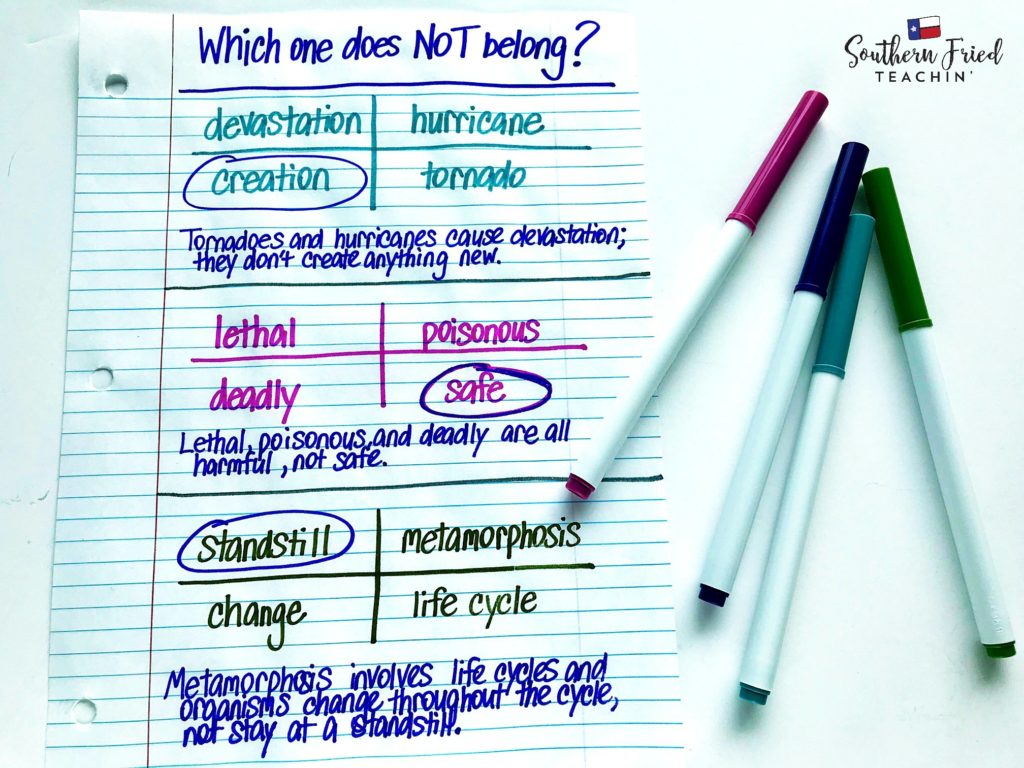
This activity is great for vocabulary since students have to think of synonyms, antonyms, and relationships with other words.
9 – FOUR PART CHART >>>>>
Years ago when I first started teaching I was trying to think of meaningful activities instead of doing worksheets. So I had them take a piece of simple white paper and fold it twice to make four parts and then traced the creases. For each part they would write the vocabulary word, the definition, and then draw a picture.
Remember Number one from above and Cinderella’s castle? After acting out the words, I had my third graders do this activity, and they truly enjoyed it and remembered the words.
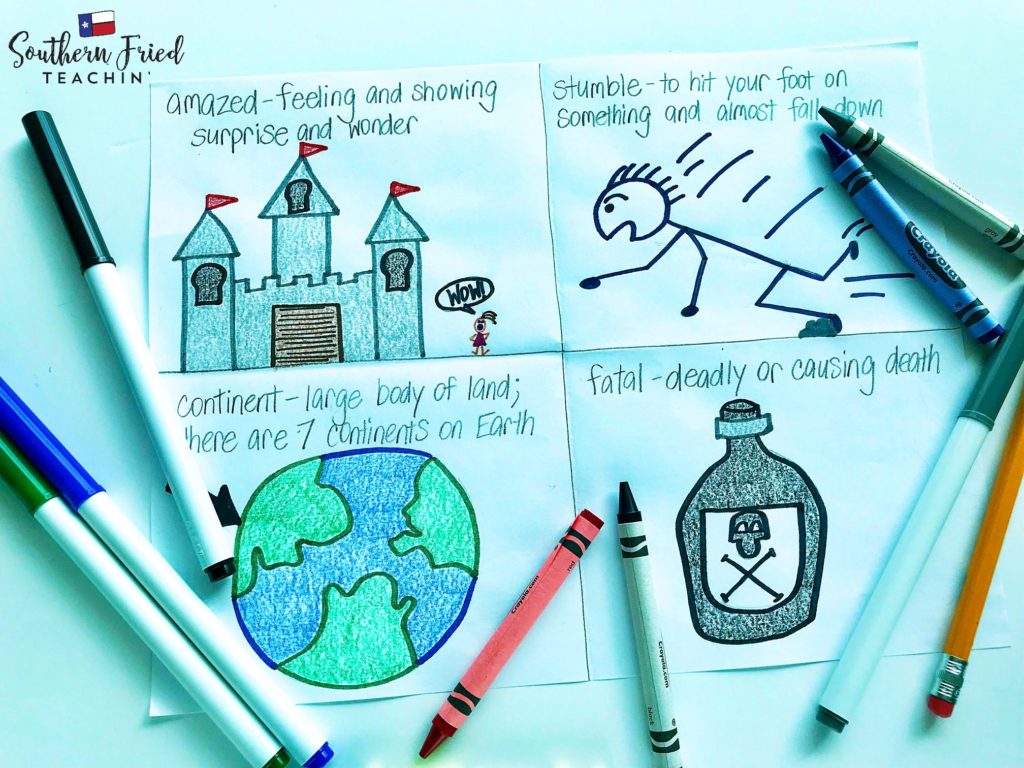
10 – VOCABULARY CHOICE BOARDS >>>>>
I LOVE using choice boards in the classroom. I wrote a blog post about using choice boards HERE .
Vocabulary choice boards are great for giving students a choice. Choice boards bring differentiation and creativity to the classroom. And we all know that differentiation is a buzz word in education today.
Each monthly choice board has 9 activities for students to choose from. You can have them work on them during independent word time, station time, morning work or for homework.
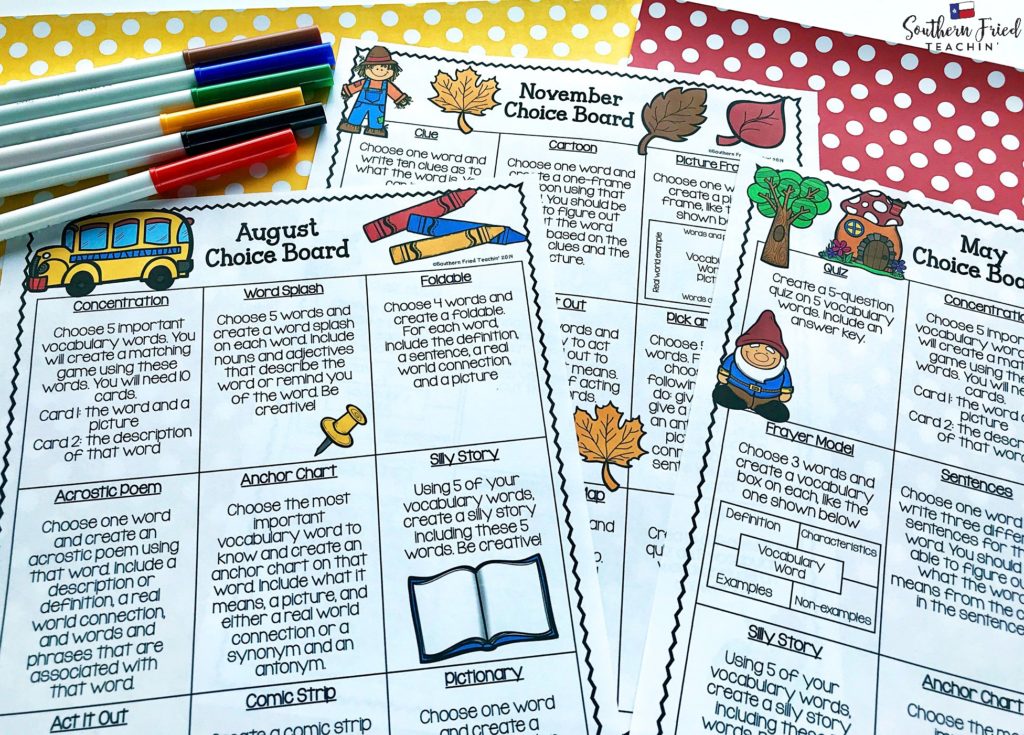
What’s your favorite vocabulary strategy?

Latest on Pinterest

Latest on Facebook
2 months ago

Share on Facebook Share on Twitter Share on Linked In Share by Email
1 years ago
This content isn't available right now
2 years ago
Latest on Instagram
Please go to the Instagram Feed settings page to create a feed.
- Grades 6-12
- School Leaders
Fill your classroom library 📚
5 Downloadable Vocabulary Activities that Make Words Stick
Make word study fun and engaging for your students.
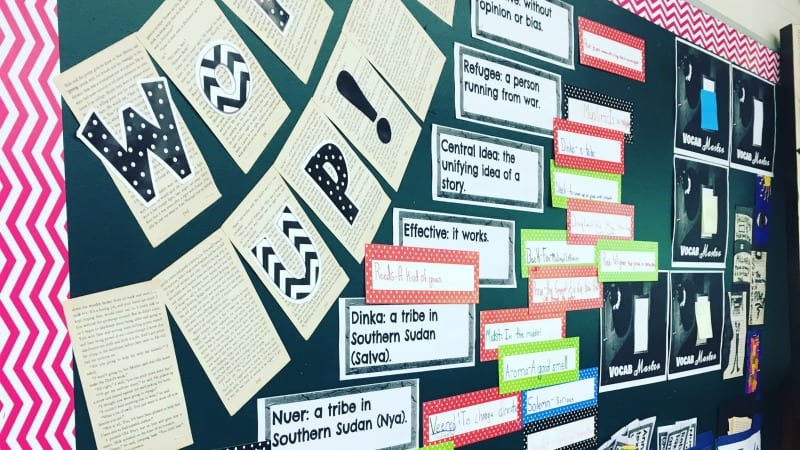
The best way to teach vocabulary is to get our students to use vocabulary. These five free downloadable vocabulary activities from Read it. Write it. Learn it. will help your students master their vocab list in no time!
1. Allow students to choose their own vocabulary words with Word Up! Bookmarks.
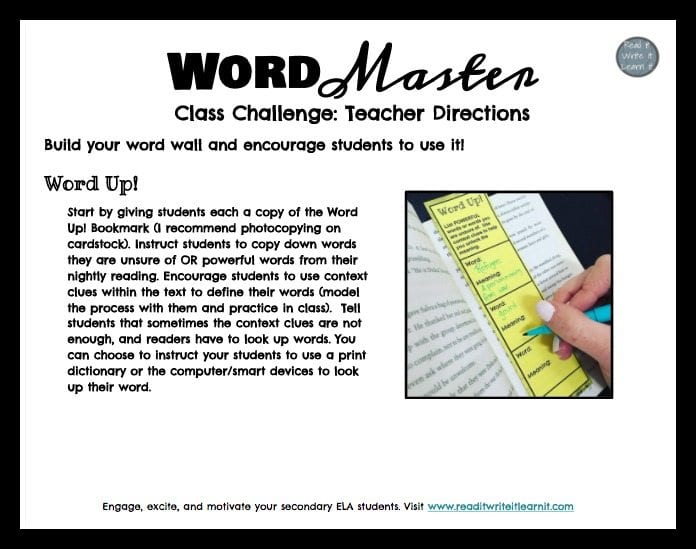
The best vocabulary words are chosen by students. Start by giving each student a copy of the Word Up! bookmark (I recommend photocopying on cardstock). Instruct students to copy down words they are unsure of or powerful words from their nightly reading. Encourage students to use context clues within the text to define their words. Model the process with them and practice in class. If students cannot unlock the meaning of words using the context clues, show them how to use print and online dictionaries for help.
2. Set up a Word-Master Class Challenge .
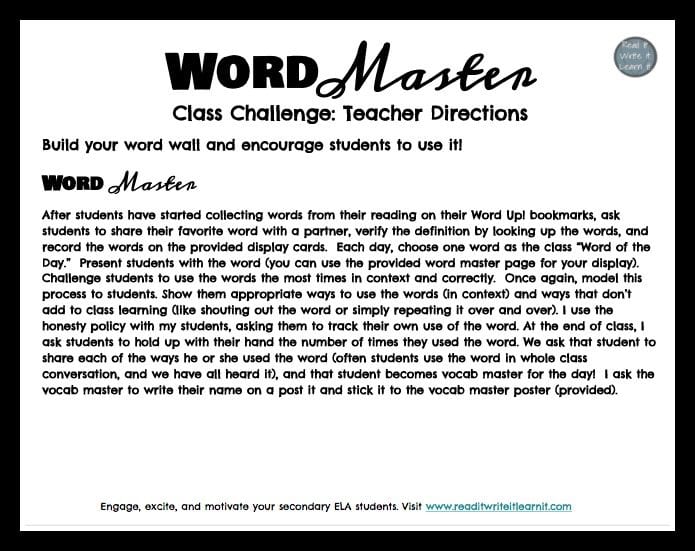
Once students start collecting vocabulary words, encourage them to use the words in their speech and writing. Use this downloadable to create a word wall and choose a word of the day. Then, enjoy the vocabulary magic that follows! The student who uses the word of the day most often during a class period wins the prestigious title of Word Master.
3. Teach definitions with a QR code project.
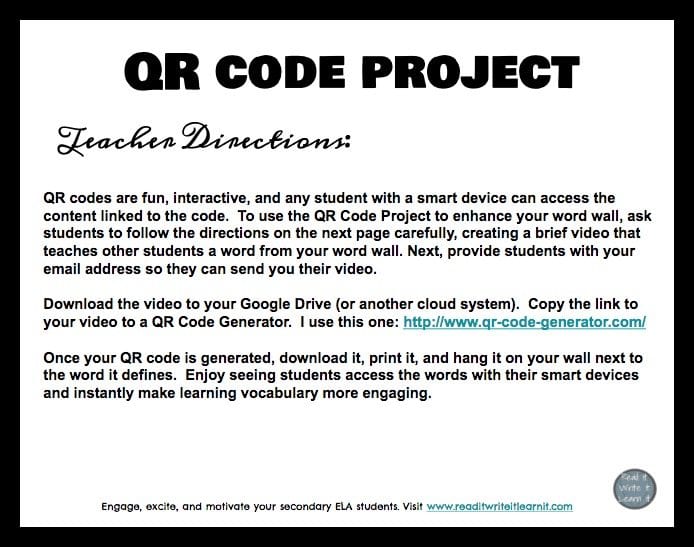
QR codes are fun and interactive, and any student with a smart device can access the content linked to the code. Use this downloadable to guide your students through the process of creating student videos that define word-wall words. Students will then email you their videos, and you can use the provided link to create a printable QR code to add to your word wall. Students simply scan the code to view the video definition of each word on your wall.
4. Encourage students to use powerful vocabulary in their writing.
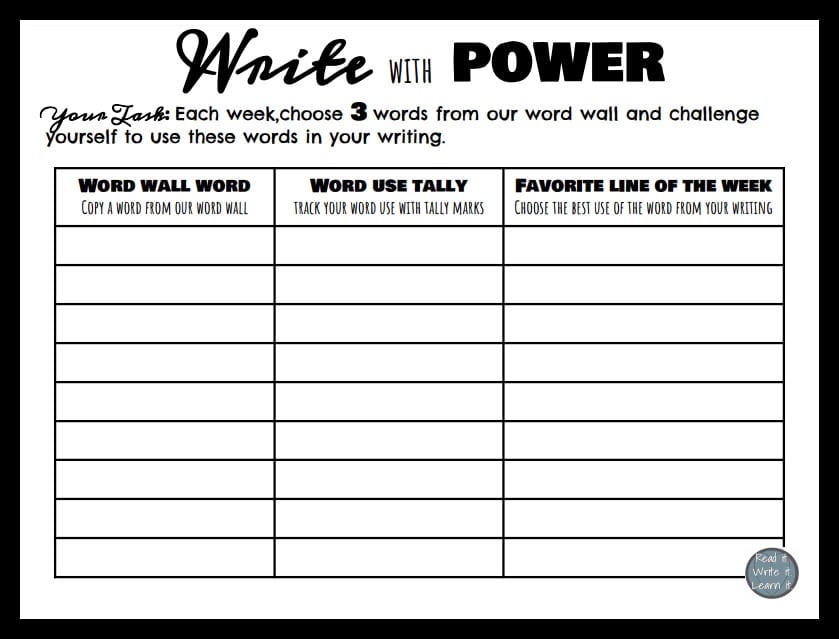
Give students this printable chart to help them apply vocabulary from your word wall into their own writing. Students simply choose three words per week, challenge themselves to use the word in the proper context as often as they can, and then share their favorite line in the last column of the chart.
To extend this activity even further and deepen students’ understanding of the words, ask students to complete the Words With Power one-pager included in this download. This activity will allow students to share favorite lines from their personal writing, displaying the line along with the literal definition, figurative and connotative meanings, and visual representations of the word.
5. Play the Word Up! Game .
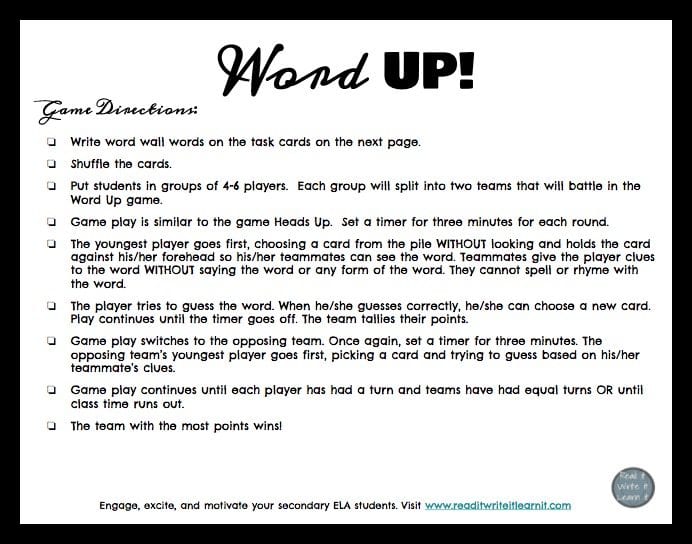
Engage students in learning their vocabulary words with the Word Up! Game. This super fun game is similar to the game Heads Up. Students write all of their word-wall or vocabulary words on the provided task cards. After shuffling the cards, one student chooses a card without looking and holds it up to their forehead. The rest of the students provide clues that will help the student guess the word. Students will have a blast and learn new vocabulary at the same time!
Learning vocabulary can be engaging and fun with the right tools. The key to making vocabulary stick is encouraging students to actually use the words we want them to learn. For more engaging and motivating vocabulary activities, check out the Read it. Write it. Learn it. store.
ADVERTISEMENT
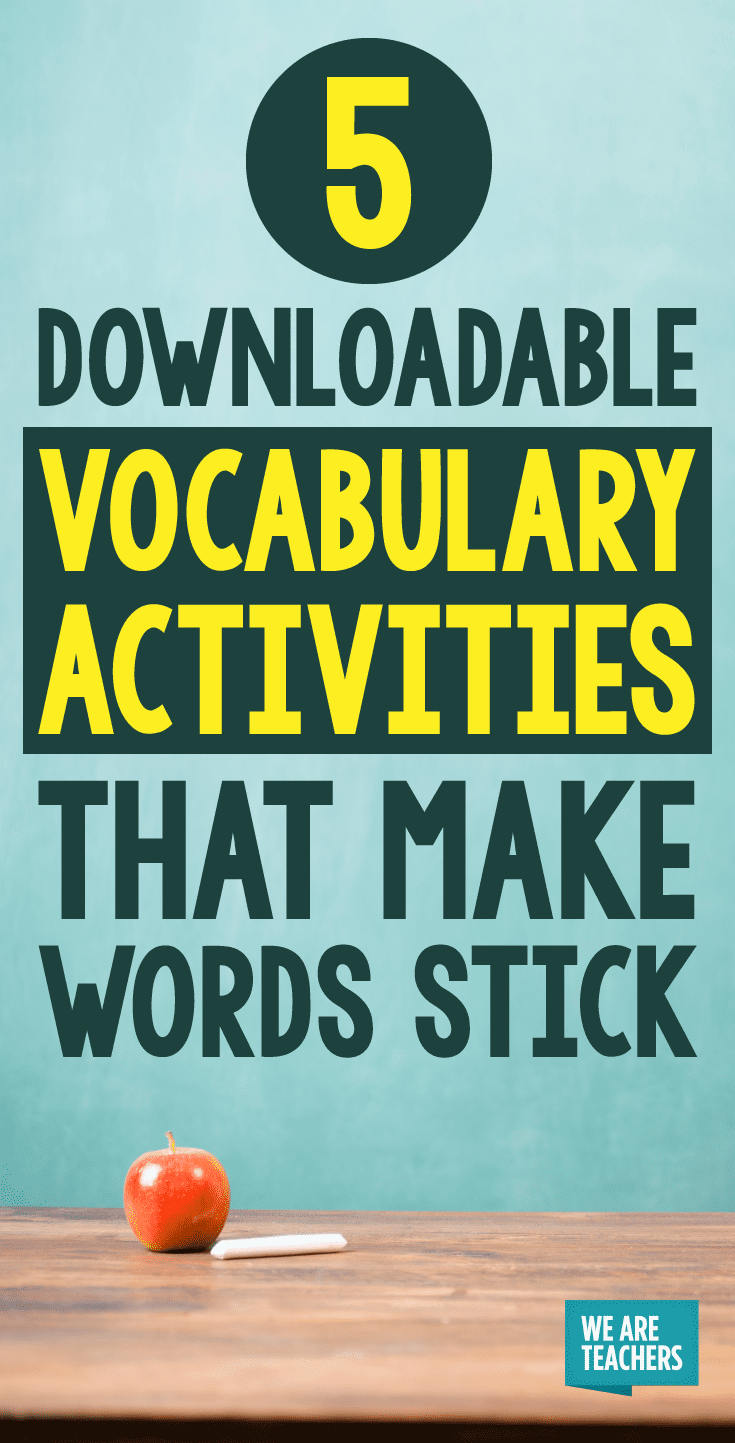
You Might Also Like
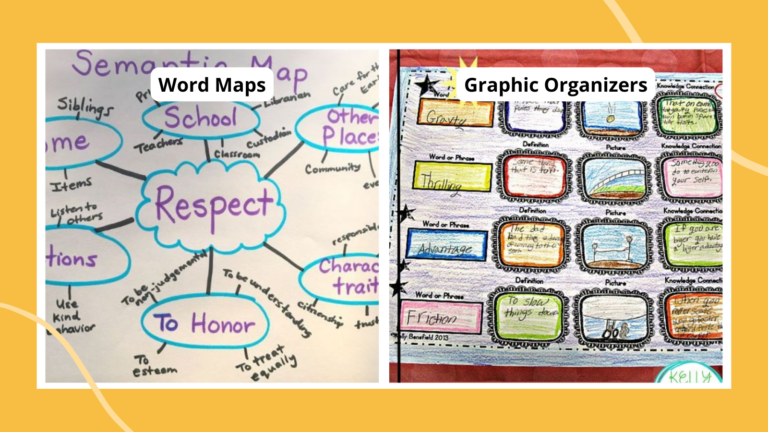
36 Meaningful Vocabulary Activities for Every Grade
These activities are the definition of fun! Continue Reading
Copyright © 2024. All rights reserved. 5335 Gate Parkway, Jacksonville, FL 32256
6 Engaging Vocabulary Activities to Try in 2020
Since vocabulary is something English teachers are constantly teaching, it can be easy to get stuck in a routine. I’ll confess that I’ve been guilty of falling into the vocabulary slideshow + guided notes trap. While it’s not an ineffective lesson, it does get boring after a while. I keep the trusty guided notes sheet in my back pocket for those days when an easy, structured “notes” lesson is necessary, but I also work hard to mix up my vocabulary lessons with engaging activities.
If you’re hoping to do the same with your vocabulary instruction in 2020, then here are 6 of my favorite student-centered, engaging vocabulary activities. 🙂 Happy teaching!

1. VOCABULARY QUESTION TRAIL

A question trail is my go-to strategy for making vocabulary instruction more engaging. If you’ve never heard of it, it’s a kinesthetic activity that gets students up and moving around the room on a “trail” of multiple-choice questions. At each station on the trail, students answer a multiple-choice question that sends them to the next question “on the trail.” If students answer each question correctly, they will travel to all questions and successfully complete the trail in the correct order. If students answer a question incorrectly, they will eventually end up at a station they’ve already completed, which means they need to backtrack and problem-solve. This also means students AND teachers can get helpful, immediate feedback.
I like to use question trails as a student-centered, interactive alternative to introducing vocabulary words with a slideshow and notes. To do this, I write multiple-choice questions that ask students to use context clues to discern the definition of a vocabulary word in a sentence. A question trail would also work for vocabulary review before an assessment.
For more information on how to create your own question trail, check out this helpful blog post or this editable template. If you don’t have time to create your own question trail, you can check out my print-ready vocabulary in context question trails. You can find one that’s suitable for 7-9th graders here, and a test-prep one that will challenge 10-12th graders here.
2. VOCABULARY TRADING CARDS
I created “vocabulary trading cards” when I got stuck in a vocab rut and was searching for a way to mix up my vocabulary instruction! Vocabulary trading cards ask students to visually represent the word on the front and then record its “stats” on the back: definition, synonyms, antonyms, and connotation. They have to plot the word’s connotation on a negative-positive spectrum, so it’s a great way to practice connotation! As a fun bonus, students even get to “rate” the word out of 5 stars. (This gives them a nice outlet to “complain” about certain words…ha!)

When I do this, each student gets their own vocabulary word (depending on the number of words). After the kids create their trading cards, they have to “duel” other students and decide which word is “better” by discussing the word’s stats and usage. You can make different standards for what “wins,” or just let them argue it out, which is what I do. Sometimes, students conclude that the positive words are stronger, or vice versa. I’ll even hear the kids converse about which words are more versatile, or they’ll make cross-curricular connections.
The “dueling,” challenging, playing, debating, or whatever you want to call it is the most fun part of this (and the part that cements the words into students’ memory). My students seriously act like kids playing Pokemon in the early 2000s (and they’re in high school). It’s hysterical and effective!
You can check out my ready-to-print vocabulary trading card template here or look into ReadWriteThink’s online trading card generator here. Their template is not designed for vocabulary, but I think it could work!
3. VOCABULARY SCAVENGER HUNT OR GALLERY WALK

This idea is so simple but incredibly effective! I created this when I had a vocabulary slideshow ready to present, but I decided I didn’t want to talk at my students for the entire day. Literally all I did was print out the slides from my presentation and tape them up around my room. Each slide had a vocabulary word, its definition, and a picture.
Here’s how it works: Students travel around the room to “find” all of the vocabulary words, jot down their definitions, and draw a picture/write a sentence/come up with some fun way to remember the word. (A simple graphic organizer works well for these “notes.”) When students think of a good example of the word, they can write it on a sticky note and post it by the paper that’s hanging up. Throughout the day, the collection of sticky notes will grow, giving students multiple examples and clever ways to remember each word. The sticky notes will give your students more connections than you could give them in a teacher-led lesson.
When you think about it, it’s not really a “scavenger hunt,” or even a real gallery walk; it’s students taking notes while walking around. But don’t call it that. Trick your kids into a little bit of kinesthetic and student-centered learning! Trust me…it works!
4. “HEADS UP” GAME

If you want a low-prep but high-impact activity, try this fun spinoff of Ellen DeGeneres’ popular “Heads Up” game. All you need is a set of cards with your vocabulary words (one per card), but the cards don’t have to be fancy. Just create a table on a doc, type one word per card, print, and cut! I recommend using a rubber band, paperclip, or plastic bag to keep each set together. Students will be grouped in partners, so you’ll need one set of cards for each set of partners.
Once in partners, students will pick one person to go first. This person will pick up a vocabulary card (without looking at it) and place it on their forehead. Then, the partner will give clues about the word, and the first person will have to guess the word. It’s that simple!
I usually have students play 2-3 “rounds” of the game to give them lots of practice. Here’s how I structure it:
- Round 1: Students can use definitions as clues.
- Round 2: Students can use only synonyms or antonyms as clues.
- Round 3: Students can use only examples/sentences as clues.
If your students love playing this game for vocabulary, you can try it with figurative language, literary devices, characters, and more. It’s always a hit in my classroom!
5. QUIZLET/QUIZLET LIVE
I can’t write a blog post on vocabulary without mentioning my all-time favorite tech tool, Quizlet Live. For those days when you have no time or energy to prep, Quizlet Live has your back. I have been known to strategically plan Quizlet Live for the first day after a break, so if you’re looking for something to do when you go back to school in January, this is it.
Quizlet Live is an engaging, collaborative game that helps students review vocabulary words. It is as simple as one click if you already have a deck of virtual flashcards set up. If you don’t have flashcards set up, it takes less than 5 minutes to make a set of 10-15. When you have a set of flashcards, click on “Live” (under “Play”) and follow the instructions to begin. Students will join with a code, and then Quizlet Live will automatically organize them into groups.
If your students are tired of Quizlet, some fun alternatives include Kahoot , Quizizz, and Gimkit. These are live learning games that are similar to Quizlet Live but just different enough to mix things up.
6. VOCABULARY LEARNING STATIONS
Last but certainly not least is one of my favorites: learning stations! Vocabulary stations are essentially a mash-up of the above activities (or any other activities you want to substitute).
Here’s my go-to set-up for vocabulary stations. You can easily add or substitute your own activities to mix things up:
- Station 1: Vocabulary Charades
- Station 2: Vocabulary Trading Cards
- Station 3: Vocabulary Pictionary
- Station 4: Writing Task
- Station 5: Quizlet/Your Choice
If you’re looking for an editable, print-ready set of vocabulary learning stations, you can check out mine here. These including the trading card template I mentioned above. 🙂 For more information on how to create your own learning stations, check out this blog post.
I hope this list helped you brainstorm some vocabulary ideas for 2020. While you’re here, let me know your favorite vocabulary activity in the comments so I can add to my collection of strategies. 🙂
Share this:
- Click to share on Twitter (Opens in new window)
- Click to share on Facebook (Opens in new window)
You may also enjoy:
10 activities for any dystopian novel, back to school activities for middle & …, 10 activities for teaching the hunger games, how to use the “what do you ….
All of these vocab ideas are BRILLIANT!! I have been wanting to try something new, and I think my kids would love all of these! Thank you for sharing – I can’t wait to try each one!
Hi Abby!!! Is it posible to turn these lovely activities into digital ones? I mean, as we’re working virtually I’d like to teach vocab with another tool different from Quizizz or Quizlet. Thank you so much!!! Your posts on Google Classroom aré extremely useful!!! Love, Cin
Leave a Reply Cancel reply
Your email address will not be published. Required fields are marked *
Notify me of follow-up comments by email.
Notify me of new posts by email.
Check out my most popular posts!
August 5, 2018: why i don’t review the syllabus on the first day …, december 16, 2018: 10 ideas for planning engaging novel units, december 11, 2017: comfort in the classroom with flexible seating, july 21, 2018: teaching american literature: my units & favorite lessons.

23 Effective Vocabulary Activities
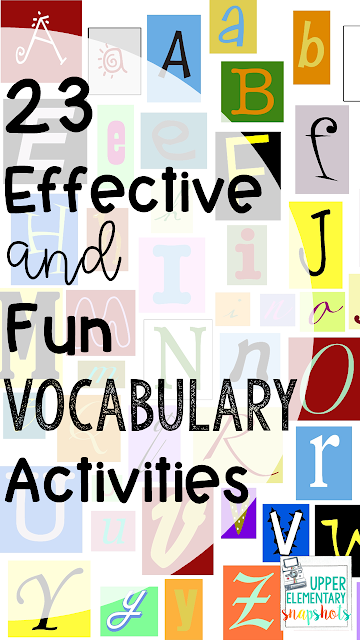

- Mathematics
- Reading and Writing
- Intervention
- Professional Learning
- Virtual Events
- What is Phonics?
- Teaching Grammar
- Vocabulary Games
- What is Virtual Learning?
- About Sadlier
- Find a Sales Representative
- International Distributors
- International Programs
- Online Catalogs
- Sadlier School Site Map
- Pricing & Ordering Information
- Sadlier’s W-9
- Sadlier’s Sole Source Letter
- Sadlier’s Credit Application
- Privacy Policy
- Return Policy
- Terms & Conditions
7 Options for Vocabulary Homework Kit
Don't let your students get stuck in a vocabulary review rut! With the 7 Options for Vocabulary Homework Kit , students can choose from a variety of fun and engaging activities for learning or reviewing vocabulary words. This bundle includes:
- 7 Options for Vocabulary Homework Handout
- Draw Your Words Homework Sheet
- Sing Your Words Homework Sheet
Fill out the form to download the 7 Options for Vocabulary Homework Kit now.
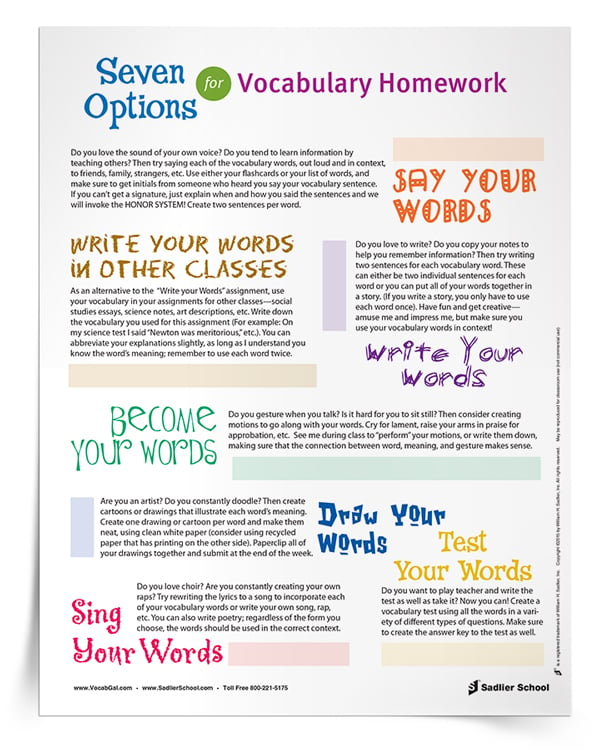
- My Storyboards
Vocabulary Worksheet Templates
Customize vocabulary worksheets.
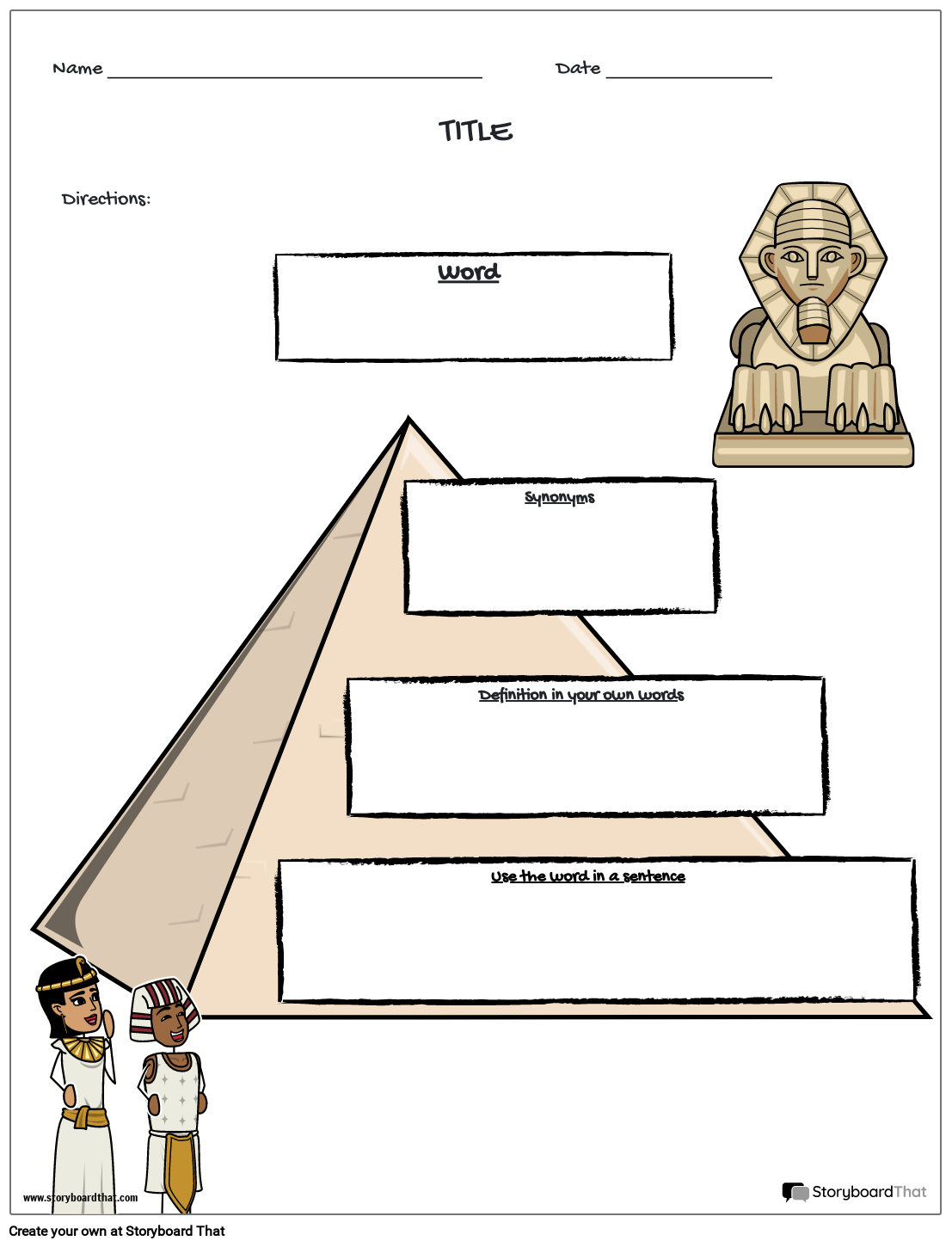
If you're assigning a vocabulary worksheet template to your students, copy the worksheet to your account and save. When creating an assignment, just select it as a template!
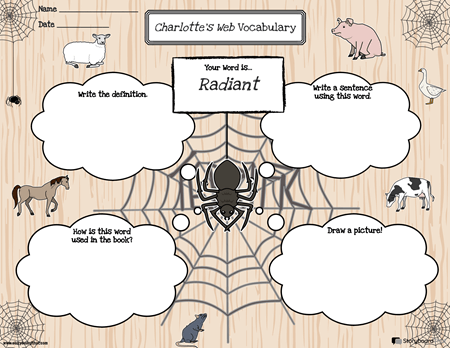
Printable Vocabulary Worksheet Templates!
Make vocabulary building activities fun! Oftentimes, explicit instruction of vocabulary can be dry and boring for students. However, Storyboard That's digital and printable worksheets can spice up any vocabulary lesson!
Vocabulary templates and graphic organizers are used to help students visually organize and keep track of new vocabulary words and their definitions. These templates for vocabulary above are designed to be used digitally or offline. Teachers may customize our free printable blank vocabulary worksheets for their students to enhance their learning on any subject!
Starting a unit or lesson with the key vocabulary that students will see in their readings or presentations aids in overall comprehension and retention. Vocabulary is the foundation of language. Becoming acquainted with new terms and concepts is crucial for students to have a thorough understanding of any unit. Storyboard That's vocab chart templates can help!
Why are Vocabulary Templates Important and How are They Best Used?
Academic achievement in any subject depends on a students' ability to grasp the concepts and apply them. Acquiring an extensive vocabulary is critical in achieving this goal. Educators know that expanding students' vocabulary is the key to expanding their reading comprehension in more advanced texts. However, improving students' vocabulary needs a multi-faceted approach. Most students are visual learners. When students define and illustrate each term using Storyboard That's graphic organizers, they will master the application of it and retain it as part of their lexicon. By illustrating and using new vocabulary words and their definitions students' will increase their understanding of any topic whether it is science, social studies, math or language arts.
Far better than simple vocabulary lists, vocab charts and graphic organizers often have places for students to draw a picture, write a sentence, and use context to help solidify the student’s understanding of the word and its meaning. There are many types of vocabulary templates that get students engaged with the words they are learning. Teachers can choose from different styles of worksheets above such as a vocabulary chart template where students can benefit from graphic organizers such as the Frayer Model which encourages them to not only know the definition of a new term or concept, but also its characteristics, examples and non-examples. Teachers could also use a vocabulary word template where students can focus on one word or concept at a time and demonstrate their understanding by writing the definition, synonyms, adding an illustration and using the word in a sentence. If there are many new and unfamiliar terms to focus on, teachers could provide students with a vocabulary list template that includes all of the terms. They could combine more than one in a sentence and create an illustration that demonstrates the meaning of multiple words. Teachers could also provide students with a more generic vocabulary sheet template that can provide students with more choice on how to demonstrate their understanding.
Other Vocabulary Resources
Storyboard that knows how important it is to integrate explicit instruction of vocabulary within any subject. Visual vocabulary storyboards are a part of many of our units and lesson plans in English language arts, science, social studies and even math! For example, most of our in depth novel study units include a lesson on vocabulary like this one from the popular novel, The Wild Robot .
When studying about new places, people and events in social studies, students are bound to come across new and unfamiliar words. That is why most of our social studies units include a vocabulary building activity like this one in our unit on the American Revolution .
Science teachers know that student success depends on their ability to integrate brand new words and concepts into creating hypotheses and conducting experiments in class. All of our science lesson plans were created by veteran science educators with this in mind which is why most include visual vocabulary boards like this one for States of Matter .
Many language learning programs are focused on the immersion method which is widely considered to be the most effective way to learn a foreign language. However, within this method is a need to explicitly teach new vocabulary for future application. Storyboard That has many lessons and applications for teaching vocabulary for English language learners as well as French and Spanish such as this lesson on Food and Restaurant Vocabulary .
For even more ideas, check out this article on vocabulary , this article on vocabulary boards , and our social studies vocabulary worksheets , and even math vocabulary worksheets .
How to Make a Vocabulary Worksheet
Choose One of the Premade Vocabulary Templates
We have color, black and white, portrait, or landscape templates. Take a look at our vocabulary example for inspiration!
Click on "Copy Template"
Once you do this, you will be directed to the storyboard creator.
Give Your Worksheet a Name!
Be sure to call it something related to the topic so that you can easily find it in the future.
Edit Your Worksheet
This is where you will include directions, specific questions and images, and make any aesthetic changes that you would like. The options are endless!
Click "Save and Exit"
When you are finished with your vocabulary worksheet, click this button in the lower right hand corner to exit your storyboard.
From here you can print, download as a PDF, attach it to an assignment and use it digitally, and more!
Happy Creating!

Frequently Asked Questions about Vocabulary Worksheet Templates
Can i use vocabulary templates for any subject.
You sure can! Our vocabulary templates can be used for subjects such as social studies, science, reading, writing, math, and world languages! Additionally, because our templates are completely customizable, teachers can make them age appropriate with just a few clicks.
How to Make a Vocabulary Worksheet from Scratch?
Are you interested in making your own vocabulary worksheet from scratch? Great! Simply follow these steps:
- Click on the “create a storyboard” button. This will bring you to the storyboard creator.
- Give your vocabulary worksheet a name. We suggest giving it a detailed name so that you know how to find it in the future. Click continue.
- Now that you are in the storyboard creator, click on the “layout” button in the right hand menu. You can choose either the worksheet (8.5x11) layout for easy printing.
- Choose whether you want your worksheet to be horizontal or vertical and click “okay”.
- To find Storyboard That’s worksheet assets, click on the “worksheets” button in the top row. If you are on a small screen such as a chromebook, you may have to press the “more” button to find this option.
- Once you are in this category, you will find all kinds of assets such as colorful borders, graphic organizers, and much more. Simply drag and drop where you want the assets to go.
- Check out the 'Scenes' category for other beautiful backgrounds, including patterns. Look under 'Speech Bubbles' to see the myriad of ways to add text including Free Form Text. You can find characters that look like teachers or students and adorable animals under the 'Characters' category. There are even whimsical icons and banners under 'Infographics' and emojis under 'Web and Wireframes'!
- Once you have made your vocabulary worksheet, click save and exit.
- Print or add to an assignment for your students to complete digitally!
How Does Vocabulary Affect Comprehension?
When reading higher level texts in language arts and learning about new concepts in social studies, science and math, students are bound to encounter many new and unfamiliar words. Learning new vocabulary is key to increasing reading comprehension. Students cannot understand what they are reading or learning about if they do not know what most of the words mean. Explicit instruction surrounding vocabulary is essential for developing a thorough understanding of new social studies concepts.
How can Teachers Help Students with Vocabulary Acquisition?
Vocabulary development is a foundation for all subjects as all teachers know. There are many ways for students to increase their lexicon. Students acquire new vocabulary through exposure to the language from a range of reading materials, discussions and presentations. It is also beneficial to preview new terms and concepts that students will encounter and explicitly teach their definitions. Most students are visual learners and using visual vocabulary storyboards will help them retain the information for future applications.
Pricing for Schools & Districts
Limited Time
- 5 Teachers for One Year
- 1 Hour of Virtual PD
30 Day Money Back Guarantee • New Customers Only • Full Price After Introductory Offer • Access is for 1 Calendar Year

- Thousands of images
- Custom layouts, scenes, characters
- And so much more!!
Create a Storyboard
Limited Time. New Customers Only
Back to school special!
30 Day Money Back Guarantee. New Customers Only. Full Price After Introductory Offer. Access is for 1 Calendar Year
Generating a Quote
This is usually pretty quick :)
Quote Sent!
Email Sent to
In order to continue enjoying our site, we ask you enter in the text you see in the image below so we can confirm your identity as a human. Thank you very much for your cooperation.
© 2003 - 2024 All other trademarks and copyrights are the property of their respective owners. All rights reserved.
SAVE 15% off your purchase with coupon: CPN15 (apply in shopping cart)
Vocabulary Worksheet Maker and Activity Generator
Easily generate printable vocabulary worksheets and activities to improve language arts skills. Employ cloze tests, spelling exercises, word puzzles and other challenging and motivating worksheet activities.
| There are no items in your shopping cart. |

Support materials fast
The ideal instructional resource for spelling, language arts, ESL, and vocabulary enrichment in any subject. Quickly create individual or class sets of vocabulary worksheets to support your lessons saving valuable preparation time and resources.
Designed for educators but ideal for anyone interested in making cloze tests, spelling exercises, word searches, crosswords, word jumbles, and other vocabulary puzzles and activities.
Auto-Generated Activities
Activities are automatically generated from your word list, sentence collection, or text file. Just a single-click of the mouse and a completely new and original activity is generated instantly.
Word Activities
Create more than 25 word activities instantly from just one word-list. All it takes is a list of words with accompanying clues. Use one of the many included lists or easily create your own. Then generate new original word activities with a single click. Includes crosswords, word searches, jumbles, mazes, decoding, spelling, and a whole lot more.
Text Activities
Create multiple text activities from a single text passage. Use one of the included text passages or create your own. Each text activity is automatically generated from the provided text. Includes cloze tests, cryptograms, spelling, punctuation practice, and more.
Sentence Activities
Generate sentence activities from any collection of sentences. Create your own collections with the sentence collection editor or use one of the built-in collections. Sentence activities include spelling, scrambles, matching, word shapes, and more.

Cloze Tests for Reading Comprehension
One of the most popular activity generators in Vocabulary Worksheet Factory is the cloze generator. Take any passage of text and instantly turn it into a cloze worksheet. Select the increment and miniumum word length, and optionally add a word bank, hints, and distractor words.
I use the vocabulary worksheet software. I have subscribed to another software package this year. I have just wasted US $30.00. No other software comes anywhere near your products. Your stuff is easy to use and adaptable to Australian needs. All the worksheets I make using Schoolhouse Technologies software look professional and are easy for children to use. The one off payment gives me a solid product that I can use almost daily.
Spelling Practice
Provide spelling practice and assessments in a variety of contexts. Turn any word list, text passage, or sentence collection into an instant spelling activity. Misspellings are automatically generated based on common typo, phonetic, and other spelling errors.
Word Searches Plus
Why settle for just the common style of word search? Mix things up with these word search variants: Word Angles, Wacky Trails, and Missing Vowels. With any of the word searches, employ a word bank or clues or both. Hide words in up to eight directions. Even use start bubbles to aid discovery.
Word Banks with a Twist
Word banks can be added to almost every word list activity to aid in solving the activity and to provide self-correction. But an extra fun challenge can be provided by turning the word list into its own jumble. Words can be reversed, split and rejoined in mixed order, or just completely scrambled. A puzzle within a puzzle.
I have been using the Vocabulary Worksheet Factory puzzles to teach math vocabulary and spelling. They are a big hit with the kids. Spelling and word recognition has improved. I assign them as homework and they return them completed dying to check the answer keys. I have left them as review work when a substitute teacher has been needed. I use them as a warm up exercise on Monday mornings...Keep up the good work.
Clues in Unexpected Places
We expect to find clues in crossword puzzles but not normally in word searches. So imagine a word search that, instead of a word bank simply providing a list of the hidden words, has a set of clues that must first be solved. Now imagine that option being available in 16 additional word puzzles from jumbles to decoding. A whole new level of challenge.

The Activity Generators
Engage and challenge your students with targeted vocabulary worksheet activities. With a total of more than 45 activity generators and the many activity configurations, limitless vocabulary worksheets are just a mouse click away.

New in version 6
Experience new ways to engage and challenge your students with version 6 of Vocabulary Worksheet Factory. This new version brings new activities, new options for existing activities, enhanced document layout, improved dialogs for working with word lists, sentences, and text, and much more.
Select your edition
With five editions of Vocabulary Worksheet Factory from Free to Enterprise, there is an affordable vocabulary worksheet generator for everyone.
- single-user
- free word search maker
- 23 activity generators
- 45 activity generators
- all users site wide
- site-wide + publishing
60-Day Money-Back Guarantee
If for any reason you are not satisfied with your Schoolhouse Technologies Software product in the first 60 days after purchase, simply contact our customer service team and we will make it right.
Not a Subscription
You buy it, you own it. No monthly or yearly subscription costs. Of course, from time to time, we release a new improved version that you just might want to pay a reduced upgrade cost to acquire. But it's your choice.
No-Penalty Edition Upgrades
Changed your mind about which edition would best meet your needs after buying? Not a problem. You simply pay the difference between editions when you upgrade.
Outstanding Support
One thing our customers agree on is that our support is exceptional. We are always there to help with any issues you may encounter.
Free Word Search Generator
Download the Word Search Edition of Vocabulary Worksheet Factory and get a free word search generator. Generate word searches from any word list in seconds. Hide the words in up to eight directions. Jumble the words in the word bank to add a degree of difficulty. Or provide a greater challenge by using clues in place of the word bank. Includes evaluation of the Pro Edition.
- Printables Library
- Log Into ETTC
- Log Into Premium
- Classroom Management
- Grammar & Writing
- Science/STEM
- Social Studies
30 Spelling Activities for ANY List of Words
- March 6, 2020
We work hard to teach our students the correct way to spell words. We spend countless hours creating spelling practice activities that are fun and not just writing the word multiple times. Are you ready to get some of those hours back?! Take a look at these fabulous EDITABLE Spelling Activities we have created for your students to practice their word lists.
Our Spelling Activities are super simple to use!!!
- Enter your spelling list into the first page of the packet.
- Choose the activities you want to use that week. (We have 150+ different pages to choose from!)
- Print those activities.
These spelling activities can be sent home as homework, used in a word work center, or as independent practice. You can find all of our editable spelling activities, (general, seasonal, and holiday-themed) on Education to the Core Premium. Join today as a monthly or annual member for instant access to this resource and thousands more.

* Spelling Activity Line-Up *
1. spelling list.
This is the page where you will type in your spelling words (up to 15 words). It can be sent home for students to study during the week, as well as for parents to cut apart and use as flashcards.
2. MAGIC WORDS
Write each spelling word in white crayon, then color over with a marker to watch them “magically” appear.
3. ALPHABETICAL ORDER
Write each spelling word in ABC order.
4. RAINBOW SPELLING

5. WRITE A SENTENCE

6. SECRET CODE

7. ROLL A SPELLING WORD
Roll the dice to see which way you are going to practice your spelling words. Which number did you roll the most?

8. WORD ILLUSTRATIONS
Students choose 4 different spelling words to illustrate. As an extension, can they write a sentence to go with the picture?
9. TRACE WORDS
Practice each word as you trace it with different writing tools.
10. EMOJI SPELLING

11. PATTERN BLOCK SPELLING

12. VOWELS AND CONSONANTS

13. SCRABBLE SPELLING

14. SPIN IT — SPELL IT

15. SPELLING MAZE

16. SPELLING SPIRAL

17. SPELLING WORD SYLLABLES
Students practice separating their spelling words into syllables. Count on fingers, clap your hands, or stomp your feet to see how many syllables are in each word. Then circle the corresponding number.
18. SILLY WRITING

19. PYRAMID SPELLING

20. SPELLING RHYMES

21. SPELLING COLORS

22. WORD SEARCH
For your higher-level kiddos, this word search is great! They write their words either across, down, or as a challenge, diagonal on the grid. Then place random letters among the words. Share with a partner to see if they can find all of your “hidden” words!
23. WORD ART

24. CREATE A STORY
How many spelling words can your students include in a story? Write a short story that makes sense and illustrate it.
25. KEYBOARD WORDS

26. STAMPING SPELLING WORDS
Everybody loves dot markers! Grab a few different colors and stamp your spelling words as you read them.
27. SYNONYMS AND ANTONYMS
For a more challenging activity, connect spelling practice with vocabulary work by finding a synonym and antonym for each spelling word.
28. SIGN LANGUAGE SPELLING

29. How Many Sounds

30. Tic-Tac-Toe Spelling
Perfect for partner spelling activities. Your students can each take a color and play tic-tac-toe with their spelling words.

At Education to the Core , we exist to help our teachers build a stronger classroom as they connect with our community to find trusted, state-of-the-art resources designed by teachers for teachers. We aspire to be the world’s leading & most trusted community for educational resources for teachers. We improve the lives of every teacher and learner with the most comprehensive, reliable, and inclusive educational resources.
If you enjoyed what we have to offer at ETTC, be sure to join our email list , so you won’t miss a beat. We are here to help with all your resource needs. Become a Premium Member of Education to the Core and receive immediate access to thousands of printable activities. For one small monthly or annual fee, everything ETTC can be at your fingertips all of the time.
Written By: Janessa Fletcher & Emily Garcia
Welcome! I’m Emily, Founder of Education to the Core. We are all about helping K-2 teachers by providing unlimited access to affordable printables for every subject area.

Student Dictionary for Kids
Search an online dictionary written specifically for young students. Kid-friendly meanings from the reference experts at Merriam-Webster help students build and master vocabulary.
Browse the Student Dictionary
Featured vocabulary resources for kids.
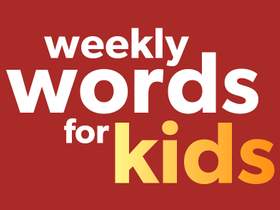
Weekly Vocabulary Words for Kids September 3
Test your child's vocabulary with these weekly buzzwords

Outer Space Vocabulary
Practice your vocabulary with these outer space words.
Types of Superpowers
From Batman to Spider-Man, test your vocabulary with this awesome superpowers list.

Baby Animal Vocabulary
Practice your vocabulary with these words for young animals!

Spring Vocabulary List
Words about the spring season
Word of the Day
Chockablock.
See Definitions and Examples »
Get Word of the Day daily email!
Games & Quizzes

List for English homework
Homework for English
Learn words with Flashcards and other activities
Other learning activities, teaching tools, full list of words from this list:.
- rail a horizontal bar, usually of wood or metal
- dictionary a reference book containing an alphabetical list of words
- lexis all of the words in a language
- grammar the branch of linguistics that deals with sentence structure
- expression the communication of your beliefs or opinions
- construction the act of building something
- fidget move restlessly
- transcript a written record of dictated or recorded speech
- sarcasm witty language used to convey insults or scorn
- repetition the act of doing or performing again
Sign up now (it’s free!)
Whether you’re a teacher or a learner, Vocabulary.com can put you or your class on the path to systematic vocabulary improvement.
- Rating Count
- Price (Ascending)
- Price (Descending)
- Most Recent
Weekly vocabulary homework
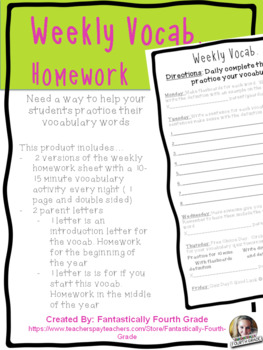
Weekly Vocabulary Homework

Grades 3-5 End of Grade (EOG) Test -Prep: Weekly Vocabulary Homework & Quizzes

6th Grade Spelling and Vocabulary Weekly Homework , 1st Quarter

6th Grade COMPLETE Year Vocabulary Lists AND Weekly Homework Choice Menus

Weekly Vocabulary Homework Template

5th Grade Spelling and Vocabulary Weekly Homework , 2nd Quarter
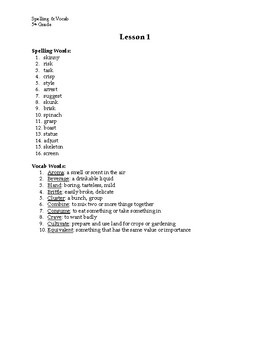
5th Grade Spelling and Vocabulary Weekly Homework , 1st Quarter
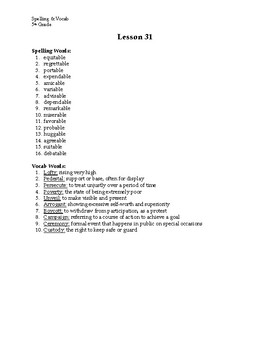
5th Grade Spelling and Vocabulary Weekly Homework , 4th Quarter
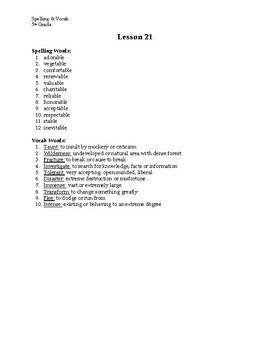
5th Grade Spelling and Vocabulary Weekly Homework , 3rd Quarter
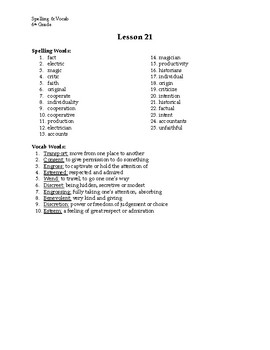
6th Grade Spelling and Vocabulary Weekly Homework , 3rd Quarter
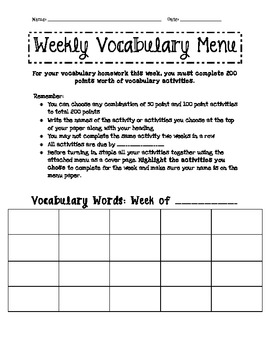
Weekly Vocabulary Menu Homework

Word Wall or Vocabulary Words Weekly Homework Template

2-Sided Weekly Vocabulary and Reading Log Homework
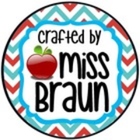
6th Grade Spelling and Vocabulary Weekly Homework , 2ndQuarter
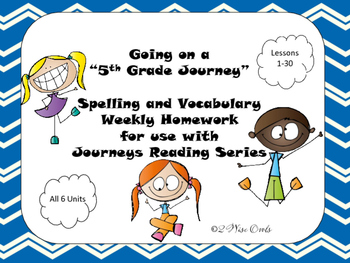
Journeys Fifth Grade Weekly Homework and Vocabulary Skills Lessons 1-30

Journeys Fourth Grade Weekly Homework and Vocabulary Skills Lessons 1-30
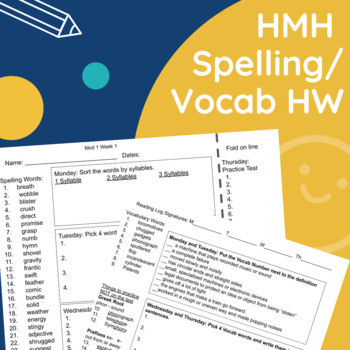
HMH 5th Grade Spelling/ Vocabulary Weekly Homework

Journeys Third Grade Weekly Homework and Vocabulary Skills Lessons 1-30

Vocabulary Study - Weekly Homework

Weekly Spelling and Vocabulary Homework Practice

Editable Spelling Practice Activities Worksheets Homework Games for any List

- We're hiring
- Help & FAQ
- Privacy policy
- Student privacy
- Terms of service
- Tell us what you think

IMAGES
VIDEO
COMMENTS
With the 7 Options for Vocabulary Homework bundle, students can choose from a variety of fun and engaging activities for learning or reviewing vocabulary words. In addition to the homework selection sheet, the bundle includes worksheets for vocabulary homework ideas number five and six.
Southern Fried Teachin'. 4. Sketch up word maps. Creating word maps from vocabulary words encourages students to find the relationships between the vocabulary word and other words. Have them include words, pictures, examples, real-world connections, definitions, descriptive words, etc. Learn more: Word Map.
Whether you're a teacher or a learner, Vocabulary.com can put you or your class on the path to systematic vocabulary improvement. Get started. Comprehensive K-12. personalized learning. Immersive learning. for 25 languages. Trusted tutors for. 300 subjects. 35,000 worksheets, games,
Choose 10 root words to focus on. Write one root word on each of 10 cards. Write the meanings on each of the other 10 cards. Game Play: Shuffle the cards and place the stack face down in the middle of the players. Hand 5 cards to each player. Players can put down any root + meaning matches.
2) On the Vocabulary Lists section of the website, select "Create New List.". This brings you to the List Builder. 3) Once you're in the List Builder, you'll see you have three choices for how to enter words into your list: "One at a time," "All at once," or "From text." Choose "From text" and paste the text into the box — anything up to ...
Vocabulary is a fundamental learning concept but covers many different areas. We've developed hundreds of practice activities to help your student improve their vocabulary skills. You'll find worksheet activities around the alphabet, dictionary skills, Fry sight words, Dolch sight words, phonetics, homographs, homophones, prefixes, proverbs and ...
1. Students are thinking about the words and how they relate to other words, thereby making associations - great for brain-based vocabulary learning! 2. Once again, this activity can be differentiated by ability level. 3. It engages students in meaningful interaction with their words. 4.
Literally. Roll a Word: Dice Vocabulary Activities can work with reading passages from different subjects…. Basically all you do is roll one die for each word. The student does the activity according to what number is rolled. 1 - Give a definition. 2 - Give a synonym & antonym. 3 - Write a sentence. 4 - Draw a picture.
The best way to teach vocabulary is to get our students to use vocabulary. These five free downloadable vocabulary activities from Read it. Write it. Learn it. will help your students master their vocab list in no time! 1. Allow students to choose their own vocabulary words with Word Up! Bookmarks. The best vocabulary words are chosen by students.
4. "HEADS UP" GAME. "Heads Up" is one of the best vocabulary games, hands down. 🙂. If you want a low-prep but high-impact activity, try this fun spinoff of Ellen DeGeneres' popular "Heads Up" game. All you need is a set of cards with your vocabulary words (one per card), but the cards don't have to be fancy.
A vocabulary list featuring homework. ... Practice Answer a few questions about each word. Use this to prep for your next quiz! Vocabulary Jam Compete with other teams in real time to see who answers the most questions correctly! Spelling Bee Test your spelling acumen. Read the definition, listen to the word and try spelling it!
Here are 23 vocabulary activities you can use with your students to help reinforce vocabulary. Most activities may be played as a whole class, in small groups, or for center times. 1. Roll the Dice. Students choose a word (from a list, from the board, from a card) and the first student rolls a dice.
With the 7 Options for Vocabulary Homework Kit, students can choose from a variety of fun and engaging activities for learning or reviewing vocabulary words. This bundle includes: 7 Options for Vocabulary Homework Handout. Draw Your Words Homework Sheet. Sing Your Words Homework Sheet.
Copy Template. Vocabulary 6. Copy Template. New Create Page Vocabulary Template 1 (Black & White) Copy Template. Create a Vocabulary Worksheet. If you're assigning a vocabulary worksheet template to your students, copy the worksheet to your account and save. When creating an assignment, just select it as a template!
Go over your child's homework and write the new vocabulary words on flashcards. There are websites you can use to create printable flashcards, as well. Use the flashcards to teach your child the words before he or she sits down to do homework. Another way that you can help your child is by teaching him or her to use context clues.
One of the most popular activity generators in Vocabulary Worksheet Factory is the cloze generator. Take any passage of text and instantly turn it into a cloze worksheet. Select the increment and miniumum word length, and optionally add a word bank, hints, and distractor words. I use the vocabulary worksheet software.
To use Vocabulary.com to study a list of words for homework, or to prepare for an upcoming quiz, start by making or finding a list. Then click on the "Practice" tab. When you practice a list, you'll only see questions on the words in your list. We'll show you a few questions on each word in your list and focus your attention on words that you ...
This Math and English Language Arts End Of Grade Test-Prep resource will include 6 Weeks of homework based on End of Grade vocabulary terms including a blank week for you to choose your own words. 6 Weekly Quizzes are also included along with a blank quiz sheet as well as an answer key. Students will begin reviewing terms they will see most often when testing.
Practice each word as you trace it with different writing tools. 10. EMOJI SPELLING. Use the emoji picture code to spell each of your words. 11. PATTERN BLOCK SPELLING. Use the pattern block spelling words to create real-life pattern block spelling words! 12. VOWELS AND CONSONANTS.
Student Dictionary for Kids. Search an online dictionary written specifically for young students. Kid-friendly meanings from the reference experts at Merriam-Webster help students build and master vocabulary.
Need flashcards to memorize vocabulary, equations, or anatomy? With millions of flashcards already created by other students and teachers, you can find free flashcards for any subject on Quizlet. Explore flashcards. Search flashcards. Spaced repetition learning.
Practice Answer a few questions about each word. Use this to prep for your next quiz! Vocabulary Jam Compete with other teams in real time to see who answers the most questions correctly! Spelling Bee Test your spelling acumen. Read the definition, listen to the word and try spelling it!
Created by. Kulas Korner. This Math and English Language Arts End Of Grade Test-Prep resource will include 6 Weeks of homework based on End of Grade vocabulary terms including a blank week for you to choose your own words. 6 Weekly Quizzes are also included along with a blank quiz sheet as well as an answer key.